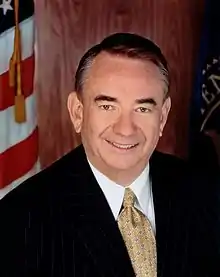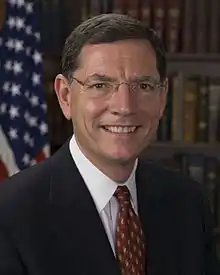2012 United States Senate elections
The 2012 United States Senate elections were held on November 6, 2012, with 33 of the 100 seats in the Senate being contested in regular elections whose winners would serve six-year terms beginning January 3, 2013, with the 113th Congress. Democrats had 21 seats up for election, plus 1 Independent and 1 Independent Democrat, while the Republicans had only 10 seats up for election. The Democrats gained Republican-held seats in Massachusetts and Indiana and one from an Independent Democrat in Connecticut, leaving them with a total of 53 seats. Additionally, they held open seats in Hawaii, New Mexico, North Dakota, Virginia and Wisconsin. The Republicans, despite losing two of their seats, picked up an open seat in Nebraska and retained open seats in Arizona and Texas, ending with a total of 45 seats. The Independents retained a seat in Vermont and gained an additional seat from the Republicans in Maine, bringing their total to 2 seats. Both Independents would caucus with the Democrats, forming a majority caucus with a combined total of 55 seats.
| |||||||||||||||||||||||||||||||||||||||||||||||||||||||||||||||||||||||
33 of the 100 seats in the United States Senate 51 seats needed for a majority | |||||||||||||||||||||||||||||||||||||||||||||||||||||||||||||||||||||||
|---|---|---|---|---|---|---|---|---|---|---|---|---|---|---|---|---|---|---|---|---|---|---|---|---|---|---|---|---|---|---|---|---|---|---|---|---|---|---|---|---|---|---|---|---|---|---|---|---|---|---|---|---|---|---|---|---|---|---|---|---|---|---|---|---|---|---|---|---|---|---|---|
| |||||||||||||||||||||||||||||||||||||||||||||||||||||||||||||||||||||||
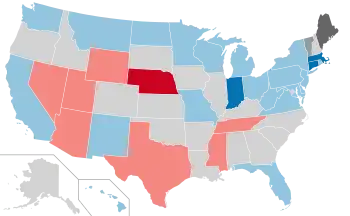 Results of the elections: Democratic gain Republican gain Independent gain Democratic hold Republican hold Independent hold No election | |||||||||||||||||||||||||||||||||||||||||||||||||||||||||||||||||||||||
| |||||||||||||||||||||||||||||||||||||||||||||||||||||||||||||||||||||||
As of 2021, this is the last time the Democrats won an outright majority in the Senate, as well as the last time they won seats in Florida, Indiana, Missouri, and North Dakota, and the last time the Republican Party won a seat in Nevada. The Democrats would not win control of the Senate again until 2020.
The presidential election, elections to the House of Representatives, elections for governors in 14 states and territories, and many state and local elections were also held on the same day.
Milestones
- This was the third consecutive election of Class 1 senators where Democrats gained seats.
- This was the third consecutive Senate election held in a presidential election year where the party belonging to the winning presidential candidate gained seats.
- This was the first time since 1936 where a Democratic presidential candidate who won a second term also had Senate coattails in both occasions (although Franklin Roosevelt won a third and fourth term in 1940 and 1944 respectively, he lost Senate seats on both occasions).
- This was the first time since 1964 in which either party had to defend more than two-thirds of the Senate seats up for grabs, but managed to make net gains.[2][3]
- As of 2021 this was the last election who an incumbent lost renomination.
- As of 2021 these are the last elections in a presidential year where a senate seat flipped to a party that failed to carry the state in the presidential election.
Results summary
| 53 | 2 | 45 |
| Democratic | Independent | Republican |
Shading indicates party with largest share of that line.
| Parties | Total | |||||||||||||||||||||||||||||||||||||||||||||||||||||||||||||||||||||||||||||||||||||||||||||||||
|---|---|---|---|---|---|---|---|---|---|---|---|---|---|---|---|---|---|---|---|---|---|---|---|---|---|---|---|---|---|---|---|---|---|---|---|---|---|---|---|---|---|---|---|---|---|---|---|---|---|---|---|---|---|---|---|---|---|---|---|---|---|---|---|---|---|---|---|---|---|---|---|---|---|---|---|---|---|---|---|---|---|---|---|---|---|---|---|---|---|---|---|---|---|---|---|---|---|---|
| Democratic | Republican | Independent | Libertarian | Independence | Green | Others | ||||||||||||||||||||||||||||||||||||||||||||||||||||||||||||||||||||||||||||||||||||||||||||
| Before these elections | 51 | 47 | 2 | — | — | — | — | 100 | ||||||||||||||||||||||||||||||||||||||||||||||||||||||||||||||||||||||||||||||||||||||||||
| Not up | 30 | 37 | — | — | — | — | — | 67 | ||||||||||||||||||||||||||||||||||||||||||||||||||||||||||||||||||||||||||||||||||||||||||
| Class 2 (2008→2014) | 20 | 13 | — | — | — | — | — | 33 | ||||||||||||||||||||||||||||||||||||||||||||||||||||||||||||||||||||||||||||||||||||||||||
| Class 3 (2010→2016) | 10 | 24 | — | — | — | — | — | 34 | ||||||||||||||||||||||||||||||||||||||||||||||||||||||||||||||||||||||||||||||||||||||||||
| Up | 21 | 10 | 2 | — | — | — | — | 33 | ||||||||||||||||||||||||||||||||||||||||||||||||||||||||||||||||||||||||||||||||||||||||||
| Class 1 | 21 | 10 | 2 | — | — | — | — | 33 | ||||||||||||||||||||||||||||||||||||||||||||||||||||||||||||||||||||||||||||||||||||||||||
| Incumbent retired | 6 | 3 | 1 | — | — | — | — | 10 | ||||||||||||||||||||||||||||||||||||||||||||||||||||||||||||||||||||||||||||||||||||||||||
| Held by same party | 5 | 2 | — | — | — | — | — | 7 | ||||||||||||||||||||||||||||||||||||||||||||||||||||||||||||||||||||||||||||||||||||||||||
| Replaced by other party | — | — | — | — | 3 | |||||||||||||||||||||||||||||||||||||||||||||||||||||||||||||||||||||||||||||||||||||||||||||
| Result | 6 | 3 | 1 | — | — | — | — | 10 | ||||||||||||||||||||||||||||||||||||||||||||||||||||||||||||||||||||||||||||||||||||||||||
| Incumbent ran | 15 | 7 | 1 | — | — | — | — | 23 | ||||||||||||||||||||||||||||||||||||||||||||||||||||||||||||||||||||||||||||||||||||||||||
| Won re-election | 15 | 5 | 1 | — | — | — | — | 21 | ||||||||||||||||||||||||||||||||||||||||||||||||||||||||||||||||||||||||||||||||||||||||||
| Lost re-election | — | — | — | — | — | 1 | ||||||||||||||||||||||||||||||||||||||||||||||||||||||||||||||||||||||||||||||||||||||||||||
| Lost renomination but held by same party |
— | — | — | — | — | — | — | |||||||||||||||||||||||||||||||||||||||||||||||||||||||||||||||||||||||||||||||||||||||||||
| Lost renomination and party lost |
— | — | — | — | — | 1 | ||||||||||||||||||||||||||||||||||||||||||||||||||||||||||||||||||||||||||||||||||||||||||||
| Result | 17 | 5 | 1 | — | — | — | — | 23 | ||||||||||||||||||||||||||||||||||||||||||||||||||||||||||||||||||||||||||||||||||||||||||
| Total elected | 23 | 8 | 2 | — | — | — | — | 33 | ||||||||||||||||||||||||||||||||||||||||||||||||||||||||||||||||||||||||||||||||||||||||||
| Net gain/loss | — | — | — | — | 2 | |||||||||||||||||||||||||||||||||||||||||||||||||||||||||||||||||||||||||||||||||||||||||||||
| Nationwide vote | 49,988,282 | 39,128,301 | 961,284 | 956,745 | 211,794 | 195,200 | 2,119,714 | 93,561,320[1] | ||||||||||||||||||||||||||||||||||||||||||||||||||||||||||||||||||||||||||||||||||||||||||
| Share | 53.43% | 41.82% | 1.03% | 1.02% | 0.23% | 0.21% | 2.27% | 100% | ||||||||||||||||||||||||||||||||||||||||||||||||||||||||||||||||||||||||||||||||||||||||||
| Result | 53 | 45 | 2 | — | — | — | — | 100 | ||||||||||||||||||||||||||||||||||||||||||||||||||||||||||||||||||||||||||||||||||||||||||
| End of this Congress | 51 | 47 | 2 | — | — | — | — | 100 | ||||||||||||||||||||||||||||||||||||||||||||||||||||||||||||||||||||||||||||||||||||||||||
Change in composition
Before the elections
| D1 | D2 | D3 | D4 | D5 | D6 | D7 | D8 | D9 | D10 |
| D20 | D19 | D18 | D17 | D16 | D15 | D14 | D13 | D12 | D11 |
| D21 | D22 | D23 | D24 | D25 | D26 | D27 | D28 | D29 | D30 |
| D40 Neb. Retired |
D39 Mont. Ran |
D38 Mo. Ran |
D37 Minn. Ran |
D36 Mich. Ran |
D35 Md. Ran |
D34 Hawaii Retired |
D33 Fla. Ran |
D32 Del. Ran |
D31 Calif. Ran |
| D41 N.J. Ran |
D42 N.M. Retired |
D43 N.Y. Ran |
D44 N.D. Retired |
D45 Ohio Ran |
D46 Pa. Ran |
D47 R.I. Ran |
D48 Va. Retired |
D49 Wash. Ran |
D50 W.Va. Ran |
| Majority → | D51 Wis. Retired | ||||||||
| R41 Mass. Ran |
R42 Miss. Ran |
R43 Nev. Ran |
R44 Tenn. Ran |
R45 Texas Retired |
R46 Utah Ran |
R47 Wyo. Ran |
I2 Vt. Ran |
I1 Conn. Retired | |
| R40 Maine Retired |
R39 Ind. Ran |
R38 Ariz. Retired |
R37 | R36 | R35 | R34 | R33 | R32 | R31 |
| R21 | R22 | R23 | R24 | R25 | R26 | R27 | R28 | R29 | R30 |
| R20 | R19 | R18 | R17 | R16 | R15 | R14 | R13 | R12 | R11 |
| R1 | R2 | R3 | R4 | R5 | R6 | R7 | R8 | R9 | R10 |
After the elections
| D1 | D2 | D3 | D4 | D5 | D6 | D7 | D8 | D9 | D10 |
| D20 | D19 | D18 | D17 | D16 | D15 | D14 | D13 | D12 | D11 |
| D21 | D22 | D23 | D24 | D25 | D26 | D27 | D28 | D29 | D30 |
| D40 N.J. Re-elected |
D39 Mont. Re-elected |
D38 Mo. Re-elected |
D37 Minn. Re-elected |
D36 Mich. Re-elected |
D35 Md. Re-elected |
D34 Hawaii Hold |
D33 Fla. Re-elected |
D32 Del. Re-elected |
D31 Calif. Re-elected |
| D41 N.M. Hold |
D42 N.Y. Re-elected |
D43 N.D. Hold |
D44 Ohio Re-elected |
D45 Pa. Re-elected |
D46 R.I. Re-elected |
D47 Va. Hold |
D48 Wash. Re-elected |
D49 W.Va. Re-elected |
D50 Wis. Hold |
| Majority → | D51 Conn. Gain | ||||||||
| R41 Tenn. Re-elected |
R42 Texas Hold |
R43 Utah Re-elected |
R44 Wyo. Re-elected |
R45 Neb. Gain |
I2 Maine Gain |
I1 Vt. Re-elected |
D53 Mass. Gain |
D52 Ind. Gain | |
| R40 Nev. Elected[lower-alpha 3] |
R39 Miss. Re-elected |
R38 Ariz. Hold |
R37 | R36 | R35 | R34 | R33 | R32 | R31 |
| R21 | R22 | R23 | R24 | R25 | R26 | R27 | R28 | R29 | R30 |
| R20 | R19 | R18 | R17 | R16 | R15 | R14 | R13 | R12 | R11 |
| R1 | R2 | R3 | R4 | R5 | R6 | R7 | R8 | R9 | R10 |
| Key: |
|
|---|
Race summary
Special elections during the 112th Congress
There were no special elections during the 112th Congress.
Elections leading to the next Congress
In these elections, the winners were elected for the term beginning January 3, 2013; ordered by state.
All of the elections involved the Class 1 seats.
Sources:
- "U.S. Elections - Detailed Results". The Wall Street Journal. November 25, 2012. Archived from the original on November 24, 2012. Retrieved November 26, 2012.
- "Senate Map - Election 2012". The New York Times. November 25, 2012. Retrieved November 26, 2012.
- "Dave Leip's Atlas of U.S. Presidential Elections".
| State (linked to summaries below) |
Incumbent | Results | Candidates | ||
|---|---|---|---|---|---|
| Senator | Party | Electoral history | |||
| Arizona | Jon Kyl | Republican | 1994 2000 2006 |
Incumbent retired.[4] New senator elected. Republican hold. |
|
| California | Dianne Feinstein | Democratic | 1992 (Special) 1994 2000 2006 |
Incumbent re-elected. |
|
| Connecticut | Joe Lieberman | Independent Democratic | 1988 1994 2000 2006 |
Incumbent retired.[9] New senator elected. Democratic gain. |
|
| Delaware | Tom Carper | Democratic | 2000 2006 |
Incumbent re-elected. |
|
| Florida | Bill Nelson | Democratic | 2000 2006 |
Incumbent re-elected. |
|
| Hawaii | Daniel Akaka | Democratic | 1990 (Appointed) 1990 (Special) 1994 2000 2006 |
Incumbent retired.[19] New senator elected. Democratic hold. |
|
| Indiana | Richard Lugar | Republican | 1976 1982 1988 1994 2000 2006 |
Incumbent lost renomination[20] New senator elected. Democratic gain. |
|
| Maine | Olympia Snowe | Republican | 1994 2000 2006 |
Incumbent retired.[22] New senator elected. Independent gain. |
|
| Maryland | Ben Cardin | Democratic | 2006 | Incumbent re-elected. |
|
| Massachusetts | Scott Brown | Republican | 2010 (Special) | Incumbent lost re-election. New senator elected. Democratic gain. |
|
| Michigan | Debbie Stabenow | Democratic | 2000 2006 |
Incumbent re-elected. |
|
| Minnesota | Amy Klobuchar | Democratic | 2006 | Incumbent re-elected. |
|
| Mississippi | Roger Wicker | Republican | 2007 (Appointed) 2008 (Special) |
Incumbent re-elected. |
|
| Missouri | Claire McCaskill | Democratic | 2006 | Incumbent re-elected. |
|
| Montana | Jon Tester | Democratic | 2006 | Incumbent re-elected. |
|
| Nebraska | Ben Nelson | Democratic | 2000 2006 |
Incumbent retired.[33] New senator elected. Republican gain. |
|
| Nevada | Dean Heller | Republican | 2011 (Appointed) | Interim appointee elected. |
|
| New Jersey | Bob Menendez | Democratic | 2006 (Appointed) 2006 |
Incumbent re-elected. |
|
| New Mexico | Jeff Bingaman | Democratic | 1982 1988 1994 2000 2006 |
Incumbent retired.[37] New senator elected. Democratic hold. |
|
| New York | Kirsten Gillibrand | Democratic | 2009 (Appointed) 2010 (Special) |
Incumbent re-elected. |
|
| North Dakota | Kent Conrad | Democratic | 1986 1992 (Retired) 1992 (Special) 1994 2000 2006 |
Incumbent retired.[40] New senator elected. Democratic hold. |
|
| Ohio | Sherrod Brown | Democratic | 2006 | Incumbent re-elected. |
|
| Pennsylvania | Bob Casey Jr. | Democratic | 2006 | Incumbent re-elected. |
|
| Rhode Island | Sheldon Whitehouse | Democratic | 2006 | Incumbent re-elected. |
|
| Tennessee | Bob Corker | Republican | 2006 | Incumbent re-elected. |
|
| Texas | Kay Bailey Hutchison | Republican | 1993 (Special) 1994 2000 2006 |
Incumbent retired.[45] New senator elected. Republican hold. |
|
| Utah | Orrin Hatch | Republican | 1976 1982 1988 1994 2000 2006 |
Incumbent re-elected. |
|
| Vermont | Bernie Sanders | Independent | 2006 | Incumbent re-elected. |
|
| Virginia | Jim Webb | Democratic | 2006 | Incumbent retired.[50] New senator elected. Democratic hold. |
|
| Washington | Maria Cantwell | Democratic | 2000 2006 |
Incumbent re-elected. |
|
| West Virginia | Joe Manchin | Democratic | 2010 (Special) | Incumbent re-elected. |
|
| Wisconsin | Herb Kohl | Democratic | 1988 1994 2000 2006 |
Incumbent retired.[54] New senator elected. Democratic hold. |
|
| Wyoming | John Barrasso | Republican | 2007 (Appointed) 2008 (Special) |
Incumbent re-elected. |
|
Close races
Elections with a margin less than 10.0%.
| District | Winner | Margin |
|---|---|---|
| North Dakota | Democratic | 0.9% |
| Nevada | Republican | 1.2% |
| Arizona | Republican | 3.0% |
| Montana | Democratic | 4.0% |
| Wisconsin | Democratic | 5.5% |
| New Mexico | Democratic | 5.7% |
| Indiana | Democratic (flip) | 5.7% |
| Virginia | Democratic | 5.9%[lower-alpha 5] |
| Ohio | Democratic | 6.0% |
| Massachusetts | Democratic (flip) | 7.5% |
| Pennsylvania | Democratic | 9.1% |
Final predictions before the election
The table below gives an overview of some final predictions of the November general elections by several well-known institutes and people. While there were very few mistakes (predictions in the wrong direction; essentially only Montana and North Dakota, by both Sabato's Crystal Ball and FiveThirtyEight), FiveThirtyEight and Princeton Election Consortium had 2-4 races in the Lean categories and no tossups, whereas all other sources had at least eleven races in the middle three categories, and in particular many Tossup races.
Gains and losses
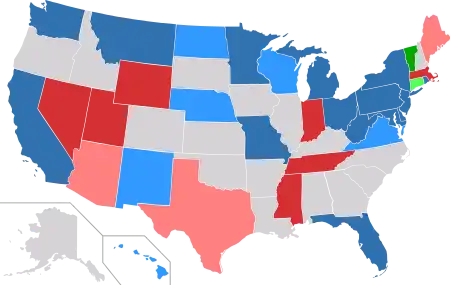
| Senate seats up for election in 2012 | ||
|---|---|---|
| Democrat ran Democrat retired |
Republican ran Republican retired |
Independent ran Independent retired |
| No Senate election | ||
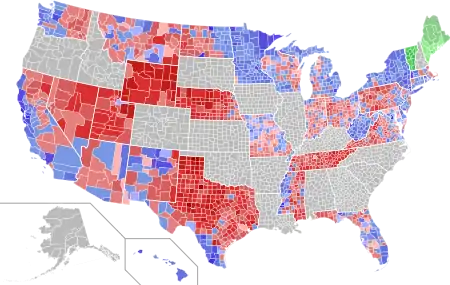
| Results by county in 2012 | ||
|---|---|---|
| 30%+ Democratic 40%+ Democratic 50%+ Democratic 60%+ Democratic 70%+ Democratic 80%+ Democratic |
30%+ Republican 40%+ Republican 50%+ Republican 60%+ Republican 70%+ Republican 80%+ Republican 90%+ Republican |
40%+ Independent 50%+ Independent 60%+ Independent 70%+ Independent |
Thirty-three seats were up for election.
Democratic incumbents
21 Democratic seats were up for election in 2012.
- 6 Democrats retired.
- 5 were replaced by a Democrat.
- 1 was replaced by a Republican.
- 15 Democrats ran for re-election.
- All 15 were re-elected.
Independent incumbents
2 Independent seats were up for election in 2012.
- 1 Independent Democrat who caucused with the Democrats retired.
- He was replaced by a Democrat.
- 1 Independent who caucused with the Democrats ran for re-election.
- He was re-elected.
Republican incumbents
10 Republican seats were up for election in 2012.
- 3 incumbent Republicans retired.
- 2 were replaced by Republicans.
- 1 was replaced by an Independent who caucuses with the Democrats.
- 7 Republicans ran for re-election
- 5 were re-elected.
- 1 lost to a Democrat.
- 1 lost renomination and was replaced by a Democrat.
Arizona
| Turnout | 52.9% (voting eligible)[55] | ||||||||||||||||
|---|---|---|---|---|---|---|---|---|---|---|---|---|---|---|---|---|---|
| |||||||||||||||||
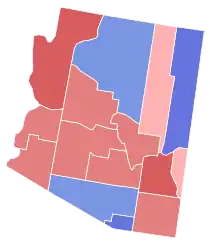 Election results Red denotes counties/districts won by Flake. Blue denotes those won by Carmona. | |||||||||||||||||
| |||||||||||||||||
Three-term incumbent and Senate Minority Whip Republican Jon Kyl, who was re-elected in 2006 with 53% of the vote, announced he would not seek a fourth term in 2012.[4][56] Republican Representative Jeff Flake[57] won the August 28 primary with 69.1% of the vote, against three contenders, including real estate investor Wil Cardon[58] who polled 21.2%. On the Democratic side, former U.S. Surgeon General Richard Carmona[59] won the primary election, which was held August 28, 2012.
| Party | Candidate | Votes | % | |
|---|---|---|---|---|
| Democratic | Richard Carmona | 289,881 | 100.00 | |
| Total votes | 289,881 | 100.00 | ||
| Party | Candidate | Votes | % | |
|---|---|---|---|---|
| Republican | Jeff Flake | 357,360 | 69.25 | |
| Republican | Wil Cardon | 110,150 | 21.35 | |
| Republican | Clair Van Steenwyk | 29,159 | 5.65 | |
| Republican | Bryan Hackbarth | 19,174 | 3.72 | |
| Republican | John Lyon (Write-in) | 126 | 0.02 | |
| Republican | Luis Acle (Write-in) | 56 | 0.01 | |
| Total votes | 516,025 | 100.00 | ||
Preliminary general election results showed Flake leading 49.7%-45.7%, but 439,961 early votes had yet to be counted.[61] The official results, as tabulated by the Secretary of State, showed a slightly smaller win for Flake. Flake won the election with 49.7% of the vote against Carmona's 46.2% and Victor's 4.6%.[62]
| Party | Candidate | Votes | % | ±% | |
|---|---|---|---|---|---|
| Republican | Jeff Flake | 1,104,457 | 49.23 | -4.11% | |
| Democratic | Richard Carmona | 1,036,542 | 46.20 | +2.70% | |
| Libertarian | Marc Victor | 102,109 | 4.55 | +1.39% | |
| N/A | write-in | 2,501 | 0.11 | +0.02% | |
| Majority | 67,915 | 3.03 | -6.81% | ||
| Turnout | 2,245,609 | 100.00 | |||
California
| Turnout | 55.2% (voting eligible)[55] | ||||||||||||||||
|---|---|---|---|---|---|---|---|---|---|---|---|---|---|---|---|---|---|
| |||||||||||||||||
| |||||||||||||||||
Incumbent Democrat Dianne Feinstein was re-elected. The primary election on June 5 took place under California's new blanket primary, where all candidates appear on the same ballot, regardless of party. In the primary, voters voted for any candidate listed, or write-in any other candidate. The top two finishers — regardless of party — advanced to the general election in November, even if a candidate managed to receive a majority of the votes cast in the June primary. In the primary, less than 15% of the total 2010 census population voted. Incumbent Democrat Dianne Feinstein finished first in the blanket primary with 49.5% of the vote. The second-place finisher was Republican candidate and autism activist Elizabeth Emken, who won 12.7% of the vote.
| Party | Candidate | Votes | % | |
|---|---|---|---|---|
| Democratic | Dianne Feinstein (Incumbent) | 2,392,822 | 49.3 | |
| Republican | Elizabeth Emken | 613,613 | 12.6 | |
| Republican | Dan Hughes | 323,840 | 6.7 | |
| Republican | Rick Williams | 157,946 | 3.3 | |
| Republican | Orly Taitz | 154,781 | 3.2 | |
| Republican | Dennis Jackson | 137,120 | 2.8 | |
| Republican | Greg Conlon | 135,421 | 2.8 | |
| Republican | Al Ramirez | 109,399 | 2.3 | |
| Libertarian | Gail Lightfoot | 101,648 | 2.1 | |
| Democratic | Diane Stewart | 97,782 | 2.0 | |
| Democratic | Mike Strimling | 97,024 | 2.0 | |
| Democratic | David Levitt | 76,482 | 1.6 | |
| Republican | Oscar Braun | 75,842 | 1.6 | |
| Republican | Robert Lauten | 57,720 | 1.2 | |
| Peace and Freedom | Marsha Feinland | 54,129 | 1.2 | |
| Democratic | Colleen Shea Fernald | 51,623 | 1.1 | |
| Republican | Donald Krampe | 39,035 | 0.8 | |
| American Independent | Don J. Grundmann | 33,037 | 0.7 | |
| Republican | Dirk Allen Konopik | 29,997 | 0.6 | |
| Republican | John Boruff | 29,357 | 0.6 | |
| Democratic | Nak Shah | 27,203 | 0.6 | |
| Republican | Rogelio T. Gloria | 22,529 | 0.5 | |
| Republican | Nachum Shifren | 21,762 | 0.4 | |
| Peace and Freedom | Kabiruddin Karim Ali | 12,269 | 0.3 | |
| Republican | Linda R. Price (write-in) | 25 | 0.0 | |
| Total votes | 4,852,406 | 100.0 | ||
Feinstein and Emken contested the general election on November 6, with Feinstein winning re-election in a landslide, by 62.5% to 37.5%. Feinstein's 7.86 million votes set the all-time record for the most votes cast for one candidate in one state in one election, beating senator Barbara Boxer's 6.96 million votes in 2004. This record was held until the 2016 presidential election in California, when Hillary Clinton won 8.75 million votes in the state.
| Party | Candidate | Votes | % | ±% | |
|---|---|---|---|---|---|
| Democratic | Dianne Feinstein (Incumbent) | 7,864,624 | 62.5 | +3.1% | |
| Republican | Elizabeth Emken | 4,713,887 | 37.5 | +2.5% | |
| Majority | 3,150,737 | 25.0 | +0.6% | ||
| Turnout | 12,578,511 | 100.00 | |||
Connecticut
| Turnout | 60.9% (voting eligible)[55] | ||||||||||||||||
|---|---|---|---|---|---|---|---|---|---|---|---|---|---|---|---|---|---|
| |||||||||||||||||
| |||||||||||||||||
Incumbent Joe Lieberman, an independent who caucused with the Democratic Party, retired instead of running for re-election to a fifth term.[64] Republican businesswoman Linda McMahon faced Democratic Representative Chris Murphy in the general election and lost, marking two defeats in as many years.[65]
In the 2006 election, incumbent Joe Lieberman was defeated in the Democratic primary by businessman Ned Lamont and formed his own party, Connecticut for Lieberman, winning re-election. Lieberman promised to remain in the Senate Democratic Caucus, but had clashed with Democrats on many significant issues, including his endorsement of Republican 2008 presidential nominee John McCain over Barack Obama.[66] As a result, Lieberman's poll numbers among Democrats had dropped significantly.[67][68]
Connecticut Attorney General Richard Blumenthal was reportedly considering a run against Lieberman,[69] but instead ran for and won Connecticut's other Senate seat in 2010 after U.S. senator Christopher Dodd announced his retirement.[70]
Lieberman had publicly floated the possibility of running as a Democrat,[71] Republican,[72] or an independent.[73] However, he announced on January 19, 2011, that he would not run for another term.[64]
| Party | Candidate | Votes | % | |
|---|---|---|---|---|
| Democratic | Chris Murphy | 89,283 | 67.4 | |
| Democratic | Susan Bysiewicz | 43,135 | 32.6 | |
| Total votes | 132,418 | 100.0 | ||
| Party | Candidate | Votes | % | |
|---|---|---|---|---|
| Republican | Linda McMahon | 83,413 | 72.7 | |
| Republican | Chris Shays | 31,305 | 27.3 | |
| Total votes | 114,718 | 100.0 | ||
Susan Bysiewicz was the first to declare herself as a candidate.[74] However, by March 2011 Chris Murphy had raised over $1 million, while Bysiewicz had raised only $500,000. Murphy represented Connecticut's 5th congressional district, which was considered Republican-leaning, and he promoted himself as the most electable candidate against a Republican challenger. Bysiewicz, the former Secretary of the State of Connecticut, enjoyed high name recognition while a statewide officeholder, and had a formidable face-off with Murphy. William Tong, a state representative, joined the race touting his biography as the son of Chinese immigrants working at a Chinese restaurant.[75] In January East Hartford resident Matthew John Oakes announced his candidacy. Oakes pointed to his real life experience being a disabled American, victim of crime, civil rights activist, growing up in the inner-city and being a political outsider for his candidacy.[76]
Wide speculation continued on Linda McMahon, who had a widely publicized race for senator in 2010. She lost the election decisively, but had strong finances and a well-established political organization.[75] McMahon met with her former campaign consultant to review her 2010 results, and said she was leaning towards running. She planned to make a decision regarding another run after the start of 2012. Congressman Chris Shays joined in August 2011, promoting his involvement in Iraq and Afghanistan's military contracting.[77] Shays campaign also gained traction from a series of independent polls showing him beating or in dead heat with the top Democratic contenders in the general election, while those same polls showed McMahon losing handily to each of the top Democratic contenders.[78] The Shays campaign has quickly capitalized on these polls, arguing for the former Congressman's electability while questioning McMahon's electability due to her loss in an open Senate seat contest in 2010 by a large margin despite spending $50 million of her own money, and also citing both her high unfavorable numbers among voters and her poor fundraising.[79]
In July 2012, Shays declared that he would not support McMahon if she won the primary. He said that he had "never run against an opponent that I have respected less—ever—and there are a lot of candidates I have run against," adding that "I do not believe that Linda McMahon has spent the time, the energy to determine what [being] a senator really means." He also said that during the last debate he had with McMahon, "I thought she was embarrassingly clueless" and that "I think she is a terrible candidate and I think she would make a terrible senator." Although he said he would not support Chris Murphy, he expected him to win the Democratic nomination and the general election.[80]
In September 2012, the records of the McMahons' 1976 bankruptcy and specifics of nearly $1 million unpaid debts from the proceeding were published.[81] In days the candidate and her husband announced the "intention to reimburse all private individual creditors that can be located".[82]
| Party | Candidate | Votes | % | ±% | |
|---|---|---|---|---|---|
| Democratic | Chris Murphy | 828,761 | 55.1 | +15.4% | |
| Republican | Linda McMahon | 651,089 | 43.3 | +33.7% | |
| Libertarian | Paul Passarelli | 25,045 | 1.6 | +1.6% | |
| Majority | 177,672 | 11.8 | |||
| Total votes | 1,504,895 | 100.0 | - | ||
| Turnout | |||||
| Democratic gain from Independent | Swing | ||||
Note: Murphy also appeared on the line of the Connecticut Working Families Party and received 37,553 votes on it. His Working Families and Democratic votes have been aggregated together on this table.
Delaware
| Turnout | 62.7% (voting eligible)[55] | ||||||||||||||||
|---|---|---|---|---|---|---|---|---|---|---|---|---|---|---|---|---|---|
| |||||||||||||||||
| |||||||||||||||||
Incumbent Democrat Tom Carper won re-election to a third term.
| Party | Candidate | Votes | % | |
|---|---|---|---|---|
| Democratic | Tom Carper (Incumbent) | 43,866 | 87.8 | |
| Democratic | Keith Spanarelli | 6,074 | 12.2 | |
| Total votes | 49,940 | 100.0 | ||
| Party | Candidate | Votes | % | ±% | |
|---|---|---|---|---|---|
| Democratic | Tom Carper (Incumbent) | 265,374 | 66.42 | -0.71% | |
| Republican | Kevin Wade | 115,694 | 28.96 | +1.52% | |
| Delaware Independent | Alex Pires | 15,300 | 3.83 | — | |
| Green | Andrew Groff | 3,191 | 0.80 | — | |
| Margin of victory | 149,680 | 37.46 | -2.22% | ||
| Turnout | 399,559 | 63.14 | +17.58% | ||
| Democratic hold | |||||
Note: The ±% column reflects the change in total number of votes won by each party from the previous election. Neither the vote shares nor the turnout figures account for write-ins. Turnout percentage is the portion of registered voters (632,805 as of January 11, 2012)[86] who voted.
Florida
| Turnout | 63.5% (voting eligible)[55] | ||||||||||||||||
|---|---|---|---|---|---|---|---|---|---|---|---|---|---|---|---|---|---|
| |||||||||||||||||
| |||||||||||||||||
The primary election was held August 14, 2012. Incumbent Democrat Bill Nelson won re-election to a third term, defeating Republican U.S. Representative Connie Mack IV by 13%, winning 55% to 42%. Nelson defeated Mack by over 1 million votes.
| Party | Candidate | Votes | % | |
|---|---|---|---|---|
| Democratic | Bill Nelson (Incumbent) | 684,804 | 78.7 | |
| Democratic | Glenn Burkett | 184,815 | 21.3 | |
| Total votes | 869,619 | 100.0 | ||
| Party | Candidate | Votes | % | |
|---|---|---|---|---|
| Republican | Connie Mack IV | 657,331 | 58.7 | |
| Republican | Dave Weldon | 226,083 | 20.2 | |
| Republican | Mike McCalister | 155,421 | 13.9 | |
| Republican | Marielena Stuart | 81,808 | 7.3 | |
| Total votes | 1,120,643 | 100.0 | ||
From a long way out Nelson appeared to be vulnerable, with some earlier polls showing Mack leading. However, in the last few weeks with new polls conducted it appeared as though Nelson was headed for a victory. The last poll place him 5 percentage points ahead of Mack. In fact Nelson would win easily by 13 percentage points. Nelson performed well in Southeast Florida (the Miami area), Tampa, Gainesville, typically Democratic areas. Nelson however managed to win in areas that lean Republican. For example, Nelson won in Duval County home of Jacksonville, and Volusia County home of Daytona Beach. Nelson's ability to outperform President Obama led to him winning the Election easily. President Obama would still win Florida, but by just about 74,000 votes, and less than a percentage point. Nelson began his third term in the Senate on January 3, 2013.
| Party | Candidate | Votes | % | ±% | |
|---|---|---|---|---|---|
| Democratic | Bill Nelson (Incumbent) | 4,523,451 | 55.2 | -5.1% | |
| Republican | Connie Mack IV | 3,458,267 | 42.2 | +4.1% | |
| Independent | Bill Gaylor | 126,079 | 1.5 | n/a | |
| Independent | Chris Borgia | 82,089 | 1.0 | n/a | |
| Write-ins | 60 | 0.0 | n/a | ||
| Majority | 1,065,184 | 13.0 | -9.2% | ||
| Turnout | 8,189,946 | ||||
| Democratic hold | Swing | ||||
Hawaii
| Turnout | 44.2% (voting eligible)[55] | ||||||||||||||||
|---|---|---|---|---|---|---|---|---|---|---|---|---|---|---|---|---|---|
| |||||||||||||||||
| |||||||||||||||||
Incumbent Democrat Daniel Akaka retired instead of running for re-election to a fourth term. Democratic Congresswoman Mazie Hirono defeated former Hawaii Governor Linda Lingle in a rematch of the 2002 Hawaii gubernatorial election.
| Party | Candidate | Votes | % | |
|---|---|---|---|---|
| Democratic | Mazie Hirono | 134,745 | 57 | |
| Democratic | Ed Case | 95,553 | 40 | |
| Blank Votes | 3,331 | 1 | ||
| Democratic | Arturo Reyes | 1,720 | 1 | |
| Democratic | Michael Gillespie | 1,104 | 1 | |
| Democratic | Antonio Gimbernat | 517 | 0.2 | |
| Over Votes | 110 | 0 | ||
| Total votes | 237,080 | 100 | ||
| Party | Candidate | Votes | % | |
|---|---|---|---|---|
| Republican | Linda Lingle | 44,252 | 90 | |
| Republican | John Carroll | 2,900 | 6 | |
| Blank Votes | 749 | 2 | ||
| Republican | John Roco | 545 | 1 | |
| Republican | Charles Collins | 366 | 1 | |
| Republican | Eddie Pirkowski | 232 | 0.5 | |
| Over Votes | 25 | 0.1 | ||
| Total votes | 49,069 | 100 | ||
| Party | Candidate | Votes | % | ±% | |
|---|---|---|---|---|---|
| Democratic | Mazie Hirono | 269,489 | 62.6 | ||
| Republican | Linda Lingle | 160,994 | 37.4 | ||
| Majority | 108,495 | 25.20 | |||
| Turnout | 430,483 | 44.2 | |||
Indiana
| Turnout | 58.5%[89] | ||||||||||||||||||||
|---|---|---|---|---|---|---|---|---|---|---|---|---|---|---|---|---|---|---|---|---|---|
| |||||||||||||||||||||
| |||||||||||||||||||||
Incumbent Republican Richard Lugar ran for re-election to a seventh term, but was defeated in the primary by Tea Party-backed Richard Mourdock. Congressman Joe Donnelly, a moderate Democrat from Indiana's 2nd Congressional District, received his party's nomination after running unopposed in the primary contest, and then defeated both Mourdock and Libertarian Andrew Horning in the general election.
Due to Lugar's unpopularity among some Tea Party voters on his positions regarding illegal immigration, voting to confirm then-U.S. Supreme Court nominees Sonia Sotomayor and Elena Kagan, the DREAM Act, the START Treaty, some gun control bills, and congressional earmarks, he was challenged by a Tea Party-backed candidate.[90][91]
The Indiana Debate Commission's GOP primary debate with Sen. Richard Lugar and State Treasurer Richard Mourdock was set to air at 7 p.m. EDT on Wednesday, April 11.[92] In a widely published poll taken March 26 to 28, Lugar was still in the lead, but by the time of a second published poll from April 30 to May 1, Mourdock was leading 48% to 38% for Lugar.
Mourdock defeated senator Lugar in the Republican primary on May 8, 2012.[93][94]
According to Indiana law, Lugar's defeat meant that he would not be permitted to run in the election either as a third party or an independent candidate after he lost the primary.[95]
| Party | Candidate | Votes | % | |
|---|---|---|---|---|
| Republican | Richard Mourdock | 400,321 | 60.5 | |
| Republican | Richard Lugar (Incumbent) | 261,285 | 39.5 | |
| Total votes | 661,606 | 100.0 | ||
| Party | Candidate | Votes | % | |
|---|---|---|---|---|
| Democratic | Joe Donnelly | 207,715 | 100.0 | |
| Total votes | 207,715 | 100.0 | ||
Mourdock became embroiled in a controversy after stating that pregnancy from rape is "something that God intended". His remarks were made during a debate on October 23, 2012, while explaining his opposition to abortion even in the case of rape. At the debate Mourdock, when asked what his position on abortion was, responded:
"I know there are some who disagree and I respect their point of view but I believe that life begins at conception. The only exception I have to have an abortion is in that case of the life of the mother. I just struggled with it myself for a long time but I came to realize: "Life is that gift from God that I think even if life begins in that horrible situation of rape, that it is something that God intended to happen"."[97]
Media speculated that this could affect the outcome of the Senate race and Presidential race[98] and multiple sources noted the similarities with the rape and pregnancy statement controversies in the 2012 United States elections.[99][100]
Responding to the criticism, Mourdock issued a statement saying: "God creates life, and that was my point. God does not want rape, and by no means was I suggesting that he does. Rape is a horrible thing, and for anyone to twist my words otherwise is absurd and sick."[101] He was later quoted at a press conference also saying: "I believe God controls the universe. I don't believe biology works in an uncontrolled fashion."[102] He however refused to issue an apology, even while prominent Republicans, including Sen. John McCain, called for him to do so.[103]
On election night Donnelly won by about six percent. Donnelly performed well in Marion County, home of Indianapolis. Donnelly also won areas with major college campuses, such as Indiana University in Bloomington, Purdue University in Lafayette. Mourdock performed well, as expected in the Indianapolis suburbs, such as Hamilton County. Mourdock conceded defeat to Donnelly at around 11:30 P.M. EST.
| Party | Candidate | Votes | % | ±% | |
|---|---|---|---|---|---|
| Democratic | Joe Donnelly | 1,281,181 | 50.04 | +50.04% | |
| Republican | Richard Mourdock | 1,133,621 | 44.28 | -43.08% | |
| Libertarian | Andy Horning | 145,282 | 5.67 | -6.92% | |
| No party | Write-Ins | 18 | 0.00 | n/a | |
| Majority | 147,560 | 5.76 | -69.49% | ||
| Turnout | 2,560,102 | 56.20 | +26.98% | ||
| Democratic gain from Republican | Swing | ||||
Maine
| |||||||||||||||||||||||||||||||||||||
| |||||||||||||||||||||||||||||||||||||
Despite initially being in the race early on and poised to easily win, popular Republican Olympia Snowe suddenly retired instead of running for re-election to a fourth term. Former Independent Governor Angus King won the open seat. Following senator Joe Lieberman's retirement from the Senate in 2013, King became the second Independent incumbent senator, after Vermont's Bernie Sanders.
Incumbent Olympia Snowe won re-election to a third term in 2006 with 74.01% of the vote over Democrat Jean Hay Bright and independent Bill Slavick. Due to the unpopularity of some of Snowe's votes among conservative voters, namely for the American Recovery and Reinvestment Act of 2009 and initial support of the Patient Protection and Affordable Care Act, there was speculation that she would face competition in the 2012 Republican primary from more conservative challengers.[105] The Tea Party Express had promised to aid in a primary against Snowe.[106] There had also been speculation that Snowe would switch parties, though she has always denied this.[107][108][109] By June 2011, Snowe had officially entered her name with signatures to run in the Republican primary, saying, she "would never switch parties".
However, on February 28, 2012, Snowe announced that she would be retiring from the U.S. Senate at the end of her term, citing the "atmosphere of polarization and 'my way or the highway' ideologies has become pervasive in campaigns and in our governing institutions" as the reason for her retirement.[110] Her announcement opened the door for candidates from all parties and creating a much more contested 2012 election.[111]
The primary election was held June 12.[112]
| Party | Candidate | Votes | % | |
|---|---|---|---|---|
| Republican | Charlie Summers | 20,578 | 29.46 | |
| Republican | Bruce Poliquin | 15,973 | 22.86 | |
| Republican | Rick Bennett | 12,544 | 17.96 | |
| Republican | Scott D'Amboise | 7,735 | 11.07 | |
| Republican | William Schneider | 6,784 | 9.71 | |
| Republican | Deborah Plowman | 6,244 | 8.94 | |
| Total votes | 69,098 | 100.00 | ||
| Party | Candidate | Votes | % | |
|---|---|---|---|---|
| Democratic | Cynthia Dill | 22,629 | 44.31 | |
| Democratic | Matt Dunlap | 18,202 | 35.64 | |
| Democratic | Jon Hinck | 6,302 | 12.34 | |
| Democratic | Benjamin Pollard | 3,945 | 7.72 | |
| Total votes | 51,078 | 100.00 | ||
| Party | Candidate | Votes | % | ±% | |
|---|---|---|---|---|---|
| Independent | Angus King | 368,724 | 52.92 | +47.55% | |
| Republican | Charlie Summers | 211,114 | 30.73 | -43.28% | |
| Democratic | Cynthia Dill | 91,635 | 13.15 | -7.44% | |
| Independent | Steve Woods | 10,321 | 1.48 | n/a | |
| Independent | Danny Dalton | 6,450 | 0.93 | n/a | |
| Libertarian | Andrew Ian Dodge | 5,543 | 0.80 | n/a | |
| Independent gain from Republican | Swing | ||||
Maryland
| |||||||||||||||||||||||||||||||||||||
| |||||||||||||||||||||||||||||||||||||
Incumbent Democrat Ben Cardin won re-election to a second term, defeating Republican nominee Dan Bongino and independent Rob Sobhani.
| Party | Candidate | Votes | % | |
|---|---|---|---|---|
| Democratic | Ben Cardin (Incumbent) | 240,704 | 74.2 | |
| Democratic | C. Anthony Muse | 50,807 | 15.7 | |
| Democratic | Chris Garner | 9,274 | 2.9 | |
| Democratic | Raymond Levi Blagmon | 5,909 | 1.8 | |
| Democratic | J. P. Cusick | 4,778 | 1.5 | |
| Democratic | Blaine Taylor | 4,376 | 1.3 | |
| Democratic | Lih Young | 3,993 | 1.2 | |
| Democratic | Ralph Jaffe | 3,313 | 1.0 | |
| Democratic | Ed Tinus | 1,064 | 0.3 | |
| Total votes | 324,218 | 100.0 | ||
| Party | Candidate | Votes | % | |
|---|---|---|---|---|
| Republican | Daniel Bongino | 68,597 | 33.6 | |
| Republican | Richard J. Douglas | 57,776 | 28.3 | |
| Republican | Joseph Alexander | 18,171 | 8.9 | |
| Republican | Bro Broadus | 11,020 | 5.4 | |
| Republican | Rick Hoover | 10,787 | 5.3 | |
| Republican | John B. Kimble | 10,506 | 5.1 | |
| Republican | David Jones | 8,380 | 4.1 | |
| Republican | Corrogan R. Vaughn | 8,158 | 4.0 | |
| Republican | William Thomas Capps, Jr. | 7,092 | 3.5 | |
| Republican | Brian Vaeth | 3,781 | 1.9 | |
| Total votes | 204,268 | 100.0 | ||
In both 2010 and 2009, National Journal magazine rated Cardin as tied for most liberal senator, based on his voting record. As of June 30, Cardin had $1.8 million in his campaign account.[117]
| Party | Candidate | Votes | % | ±% | |
|---|---|---|---|---|---|
| Democratic | Ben Cardin (Incumbent) | 1,402,092 | 55.41 | +1.20% | |
| Republican | Daniel Bongino | 674,649 | 26.66 | -17.53% | |
| Independent | S. Rob Sobhani | 420,554 | 16.62 | N/A | |
| Libertarian | Dean Ahmad | 30,672 | 1.21 | +1.21% | |
| N/A | Others (write-in) | 2,583 | 0.10 | +0.05% | |
| Majority | 727,443 | 100.00 | |||
| Turnout | 2,530,550 | 68.23 | |||
| Democratic hold | Swing | ||||
Massachusetts
| |||||||||||||||||
| |||||||||||||||||
Incumbent Republican Scott Brown ran for re-election to a first full term. He had been elected in a special election in 2010 following the death of incumbent Democrat Ted Kennedy. Brown faced no challengers from his own party. For the Democrats, an initial wide field of prospective candidates narrowed after the entry of Harvard Law School Professor Elizabeth Warren, the architect of the Consumer Financial Protection Bureau. Warren clinched near-unanimous party support, with all but one of the other Democratic candidates withdrawing following her entrance. After winning her party's nomination, eliminating any need for a primary, she faced Brown in the general election.
The election was one of the most-followed races in 2012 and cost approximately $82 million, which made it the most expensive election in Massachusetts history and the second-most expensive in the entire 2012 election cycle, next to that year's presidential election. This was despite the two candidates' having agreed not to allow outside money to influence the race. Opinion polling indicated a close race for much of the campaign, though Warren opened up a small but consistent lead in the final few weeks. She went on to defeat Brown by over 236,000 votes, 54% to 46%.
Democratic U.S. senator Ted Kennedy was re-elected in 2006, and died on August 25, 2009, from a malignant brain tumor.[119] On September 24, 2009, Massachusetts Governor Deval Patrick appointed longtime friend of Kennedy and former Democratic National Committee Chairman Paul G. Kirk to succeed Kennedy until a special election could be held.[120] Kirk's appointment was especially controversial, as the Governor's ability to appoint an interim senator was removed during the Romney administration by the Democratic-controlled legislature, as a precaution if senator and presidential nominee John Kerry was elected President in 2004. Laws surrounding Senate appointment were quickly changed following Kennedy's death.[121] The Massachusetts Republican Party sued in an attempt to halt Kirk's appointment, but it was rejected by Suffolk Superior Court Judge Thomas Connolly.[122]
In the special election held January 19, 2010, Republican State senator Scott Brown defeated Democratic State Attorney General Martha Coakley in an upset victory.[123] Brown thus became the first Republican to be elected from Massachusetts to the United States Senate since Edward Brooke in 1972 and he began serving the remainder of Kennedy's term on February 4, 2010.[124][125]
Incumbent Scott Brown faced no challenges from within his party. The political action committee National Republican Trust, a group integral to Brown's election in 2010, vowed to draft a challenger for Brown but were unable to find one.[126]
| Party | Candidate | Votes | % | |
|---|---|---|---|---|
| Republican | Scott Brown | 133,860 | 99.46 | |
| Republican | Write-ins | 733 | 0.54 | |
| Total votes | 134,593 | 100.00 | ||
The Massachusetts Democratic Convention was held June 2, 2012, where Warren received 95.77% of delegate votes.[128] As the only candidate with 15% of delegate votes necessary to qualify for the primary ballot, Warren eliminated her challenger Marisa DeFranco, becoming the de facto nominee. The Democratic primary was held September 6, 2012, with Warren running unopposed.[129]
| Party | Candidate | Votes | % | |
|---|---|---|---|---|
| Democratic | Elizabeth Warren | 308,979 | 97.59 | |
| Democratic | Write-ins | 7,638 | 2.41 | |
| Total votes | 316,617 | 100.00 | ||
Brown ran as a moderate, stressing his ability to cross party lines and highlighting his votes for the Dodd-Frank financial reform law and to repeal "don't ask, don't tell".[131] Warren campaigned on a platform championing the middle class, and supporting Wall Street regulation. Warren criticized Brown for continually voting with Republican leadership, and argued that he was not the bipartisan moderate he claimed to be.[132][133] A staple of Brown's attack tactics against Warren was his consistent reference to her as "Professor Warren", in attempt to portray her as an elitist academic.[134] Brown faced blowback after the second debate, during which he claimed conservative Antonin Scalia was a "model" Supreme Court Justice, prompting boos from the debate audience.[135]
Warren spoke at the 2012 Democratic National Convention immediately before Bill Clinton on the penultimate night of the convention. Warren contrasted President Obama's economic plan with Mitt Romney's in the 2012 election and rebuked the Republican Party's economic policy stating: "Their vision is clear: 'I've got mine, and the rest of you are on your own.'" Warren positioned herself as a champion of a beleaguered middle class that, as she said, "has been chipped, squeezed and hammered."[136][137][138] Brown attended the 2012 Republican National Convention, but was not a speaker there. According to Brown, he had rejected an offer to play a larger role, and limited his attendance to a single day because of scheduling demands.[139][140]
Following Todd Akin's controversial "legitimate rape" comments, Brown was the first sitting senator to demand he drop out of the Missouri U.S. Senate race.[141] He also called on his Party to "recognize in its platform that you can be pro-choice and still be a good Republican."[141] Brown's campaign had been endorsed by many Massachusetts Democrats, many of whom were prominently featured in his campaign ads.[142]
In September 2011, a video of Warren explaining her approach to economic policy gained popularity on the internet.[143] In the video, Warren rebuts the charge that asking the rich to pay more taxes is "class warfare", pointing out that no one grew rich in America without depending on infrastructure paid for by the rest of society, stating:[144][145]
There is nobody in this country who got rich on his own. Nobody. ... You moved your goods to market on the roads the rest of us paid for; you hired workers the rest of us paid to educate; you were safe in your factory because of police forces and fire forces that the rest of us paid for. You didn't have to worry that marauding bands would come and seize everything at your factory, and hire someone to protect against this, because of the work the rest of us did. Now look, you built a factory and it turned into something terrific, or a great idea. God bless. Keep a big hunk of it. But part of the underlying social contract is, you take a hunk of that and pay forward for the next kid who comes along.
On July 13, 2012, President Obama sparked a controversy when he echoed her thoughts[146][147] in a campaign speech saying, "Somebody helped to create this unbelievable American system that we have that allowed you to thrive. Somebody invested in roads and bridges. If you've got a business—you didn't build that. Somebody else made that happen."[148][149]
Warren encountered significant opposition from business interests. In August 2012, Rob Engstrom, political director for the United States Chamber of Commerce, claimed that "no other candidate in 2012 represents a greater threat to free enterprise than Professor Warren."[150] She nonetheless raised $39 million for her campaign, the most of any Senate candidate in 2012.[151]
Despite President Obama's winning the state easily, and winning all of the state's counties, this race was fairly close. As expected, Warren performed very well in Suffolk County, which is home to the state's largest city and its capital Boston. Brown performed well in the southern part of the state near Cape Cod. Warren made history by becoming the first woman elected to the U.S. Senate in the state of Massachusetts.
| Party | Candidate | Votes | % | ±% | |
|---|---|---|---|---|---|
| Democratic | Elizabeth Warren | 1,696,346 | 53.74% | ||
| Republican | Scott Brown (Incumbent) | 1,458,048 | 46.19% | ||
| All others | 2,159 | 0.07% | |||
| Majority | 236,139 | 7.48% | |||
| Turnout | 3,156,553 | ||||
| Democratic gain from Republican | Swing | ||||
Michigan
| |||||||||||||||||
| |||||||||||||||||
Incumbent Democrat Debbie Stabenow was re-elected to a third term after being unopposed in the Democratic primary. The Republican nominee was former Congressman Pete Hoekstra. Stabenow defeated Hoekstra by a landslide 21% margin and by almost one million votes.
| Party | Candidate | Votes | % | |
|---|---|---|---|---|
| Democratic | Debbie Stabenow (Incumbent) | 702,773 | 100.00 | |
| Total votes | 702,773 | 100.00% | ||
The GOP primary campaign was mainly a battle between Hoekstra and Durant as they were the most visible in running campaign ads. Despite Durant's attack ads, Hoekstra was leading in the polls for the Republican nomination.[153]
| Party | Candidate | Votes | % | |
|---|---|---|---|---|
| Republican | Pete Hoekstra | 398,793 | 54.2 | |
| Republican | Clark Durant | 246,584 | 33.5 | |
| Republican | Randy Hekman | 49,080 | 6.7 | |
| Republican | Gary Glenn | 40,726 | 5.5 | |
| Total votes | 735,183 | 100.0 | ||
| Party | Candidate | Votes | % | ±% | |
|---|---|---|---|---|---|
| Democratic | Debbie Stabenow (Incumbent) | 2,735,826 | 58.8 | +1.9% | |
| Republican | Pete Hoekstra | 1,767,386 | 38.0 | -3.3% | |
| Libertarian | Scotty Boman | 84,480 | 1.8 | +1.1% | |
| Green | Harley Mikkelson | 27,890 | 0.6 | - | |
| Constitution | Richard Matkin | 26,038 | 0.6 | +0.1% | |
| Natural Law | John Litle | 11,229 | 0.2 | +0.1% | |
| Others | Write-in | 69 | 0.0 | - | |
| Majority | 968,440 | 20.8 | |||
| Turnout | 4,652,918 | ||||
| Democratic hold | Swing | 2.6% | |||
Minnesota
| |||||||||||||||||
| |||||||||||||||||
Incumbent Democrat Amy Klobuchar was re-elected to a second term in a landslide, defeating the Republican nominee, State Representative Kurt Bills by almost one million votes, and carrying all but two of the state's counties.
Incumbent Amy Klobuchar was first elected in 2006 to succeed the retiring DFL incumbent Mark Dayton.
| Party | Candidate | Votes | % | |
|---|---|---|---|---|
| Democratic (DFL) | Amy Klobuchar | 183,702 | 90.79 | |
| Democratic (DFL) | Dick Franson | 6,832 | 3.38 | |
| Democratic (DFL) | Jack Shepard | 6,638 | 3.28 | |
| Democratic (DFL) | Darryl Stanton | 5,160 | 2.55 | |
| Total votes | 202,332 | 100.00 | ||
| Party | Candidate | Votes | % | |
|---|---|---|---|---|
| Republican | Kurt Bills | 63,380 | 51.12 | |
| Republican | David Carlson | 43,847 | 35.37 | |
| Republican | Bob Carney, Jr. | 16,755 | 13.51 | |
| Total votes | 123,982 | 100.00 | ||
The Independence Party of Minnesota did not plan to run a candidate in the general election. Party chairman Mark Jenkins said in November 2011 that he saw the Senate election as "a distraction from having our best and brightest engaged in state legislative races".[156] At the party's convention in June 2012, neither candidate was endorsed although Williams won a majority of the votes and came within two votes of the required 60% needed for the party's endorsement. He proceeded with his run for the Senate but the party focused its attention on state legislative races.[157]
| Party | Candidate | Votes | % | ±% | |
|---|---|---|---|---|---|
| Democratic (DFL) | Amy Klobuchar (Incumbent) | 1,852,526 | 65.2 | +7.1% | |
| Republican | Kurt Bills | 869,089 | 30.6 | -7.3% | |
| Independence | Stephen Williams | 73,559 | 2.6 | -0.6% | |
| Grassroots | Tim Davis | 30,465 | 1.1 | n/a | |
| Open Progressive | Michael Cavlan | 13,933 | 0.5 | n/a | |
| Majority | 983,437 | 34.6 | +14.4% | ||
| Democratic (DFL) hold | Swing | ||||
Mississippi
| Turnout | 59.7% (voting eligible)[55] | ||||||||||||||||
|---|---|---|---|---|---|---|---|---|---|---|---|---|---|---|---|---|---|
| |||||||||||||||||
| |||||||||||||||||
Incumbent Republican Roger Wicker won re-election to his first full term over Democrat Albert N. Gore. Former U.S. representative Roger Wicker was appointed by Governor Haley Barbour after then-incumbent Trent Lott retired at the end of 2007. A 2008 special election was later scheduled to determine who would serve the remainder of the term. Then-U.S. Sen. Roger Wicker defeated former Mississippi Governor Ronnie Musgrove with 54.96% of the vote in the special election and will be up for re-election in 2012. This would've been Trent Lott's fifth term as senator had he remained in office.
| Party | Candidate | Votes | % | |
|---|---|---|---|---|
| Republican | Roger Wicker | 254,936 | 89.17 | |
| Republican | Robert Maloney | 18,857 | 6.60 | |
| Republican | Allen Hathcock | 12,106 | 4.23 | |
| Total votes | 285,899 | 100.00 | ||
| Party | Candidate | Votes | % | |
|---|---|---|---|---|
| Democratic | Albert Gore | 49,157 | 56.77 | |
| Democratic | Roger Weiner | 21,131 | 24.40 | |
| Democratic | Will Oatis | 16,300 | 18.83 | |
| Total votes | 86,588 | 100.00 | ||
| Party | Candidate | Votes | % | ±% | |
|---|---|---|---|---|---|
| Republican | Roger Wicker (Incumbent) | 709,626 | 57.16 | ||
| Democratic | Albert Gore | 503,467 | 40.55 | ||
| Constitution | Thomas Cramer | 15,281 | 1.23 | ||
| Reform | Shawn O'Hara | 13,194 | 1.06 | ||
| Majority | 206,159 | 16.6 | |||
| Turnout | 1,241,568 | ||||
Missouri
| |||||||||||||||||||||||||||||||||||||
| |||||||||||||||||||||||||||||||||||||
Incumbent Democrat Claire McCaskill was unopposed in her primary and U.S. Representative Todd Akin won the Republican nomination with a plurality in a close three-way race. McCaskill was re-elected to a second term.
Time featured the race in their Senate article. Similar to other races, the article mentioned how McCaskill was fading in pre-election polls, and she was considered the most vulnerable/endangered Democratic incumbent that year. But Akin's comments about a woman's body preventing pregnancy if it was "legitimate rape" quickly shot McCaskill back up, winning her the election.[161][162][163]
| Party | Candidate | Votes | % | |
|---|---|---|---|---|
| Democratic | Claire McCaskill (Incumbent) | 289,481 | 100.00 | |
| Total votes | 289,481 | 100.00 | ||
The Republican primary, held August 7, 2012, was one of the three most anticipated of summer 2012. This was due to the projected closeness of the Federal races in the 'Show-Me State' in November 2012, and the potential to change the control of the Senate in January 2013.[165] Democrats believed that Todd Akin would be the weakest among the likely challengers for the Senate seat, and ads attacking him as "too conservative" were largely viewed as a veiled support for his nomination.[166][167][168]
| Party | Candidate | Votes | % | |
|---|---|---|---|---|
| Republican | Todd Akin | 217,404 | 36.05 | |
| Republican | John Brunner | 180,788 | 29.98 | |
| Republican | Sarah Steelman | 176,127 | 29.20 | |
| Republican | Jerry Beck | 9,801 | 1.62 | |
| Republican | Hector Maldonado | 7,410 | 1.23 | |
| Republican | Robert Poole | 6,100 | 1.01 | |
| Republican | Mark Memoly | 3,205 | 0.53 | |
| Republican | Mark Lodes | 2,285 | 0.38 | |
| Total votes | 603,120 | 100.00 | ||
| Party | Candidate | Votes | % | |
|---|---|---|---|---|
| Libertarian | Jonathan Dine | 2,470 | 100.00 | |
| Total votes | 2,470 | 100.00 | ||
While making remarks on rape and abortion on August 19, 2012, Akin made the claim that women victims of what he described as "legitimate rape" rarely experience pregnancy from rape. In an interview aired on St. Louis television station KTVI-TV, Aiken was asked his views on whether women who became pregnant due to rape should have the option of abortion. He replied:
Well you know, people always want to try to make that as one of those things, well how do you, how do you slice this particularly tough sort of ethical question. First of all, from what I understand from doctors, that's really rare. If it's a legitimate rape, the female body has ways to try to shut that whole thing down. But let's assume that maybe that didn't work or something. I think there should be some punishment, but the punishment ought to be on the rapist and not attacking the child.[169]
The comments from Akin almost immediately led to uproar, with the term "legitimate rape" being taken to imply belief in a view that some kinds of rape are "legitimate", or alternatively that the many victims who do become pregnant from rape are likely to be lying about their claim. His claims about the likelihood of pregnancy resulting from rape were widely seen as being based on long-discredited pseudoscience with experts seeing the claims as lacking any basis of medical validity.[170][171][172] Akin was not the first to make such claims, but was perhaps one of the most prominent.[173] While some voices such as Iowa congressman Steve King supported Akin,[174] senior figures in both parties condemned his remarks and some Republicans called for him to resign.[175][176][177] In the resulting furor, Akin received widespread calls to drop out of his Senate race from both Republicans and Democrats.[178] Akin apologized after making the comment, saying he "misspoke", and he stated he planned to remain in the Senate race. This response was itself attacked by many commentators who saw the initial comments as representative of his long-held views, rather than an accidental gaffe.
The comment was widely characterized as misogynistic and recklessly inaccurate, with many commentators remarking on the use of the words "legitimate rape".[179][180][181] Related news articles cited a 1996 article in an obstetrics and gynecology journal, which found that 5% of women who were raped became pregnant, which equaled about 32,000 pregnancies each year in the US alone.[182] A separate 2003 article in the journal Human Nature estimated that rapes are twice as likely to result in pregnancies as consensual sex.[183] (See also pregnancy from rape.)
The incident was seen as having an impact on Akin's senate race and the Republicans' chances of gaining a majority in the U.S. Senate,[184] by making news in the week before the 2012 Republican National Convention and by "shift[ing] the national discussion to divisive social issues that could repel swing voters rather than economic issues that could attract them".[185] Akin, along with other Republican candidates with controversial positions on rape, lost due to backlash from women voters.[186]
On October 20, at a fundraiser, Akin compared McCaskill to a dog. After being criticized, Akin's campaign aide wrote on his official Twitter page that if Claire McCaskill "were a dog, she'd be a ‘Bullshitsu.’" The aide later said that he was joking.[187] Akin was caught on tape commenting that "Sen. Claire McCaskill goes to Washington, D.C., to ‘fetch' higher taxes and regulations."[188]
Even though the last poll before the election showed Akin only losing by four percentage points, McCaskill defeated him handily, by a 15.5% margin of victory and a vote margin of 420,985. Both McCaskill and incumbent Governor Jay Nixon, running at the same time, were able to get a large number of votes from rural parts of the state, something President Barack Obama was not able to do. McCaskill and Nixon were declared the winners of their respective races even before the known big Democratic strongholds of St. Louis and Kansas City came in. Akin conceded defeat to McCaskill at 10:38 P.M. Central Time.
| Party | Candidate | Votes | % | ±% | |
|---|---|---|---|---|---|
| Democratic | Claire McCaskill (Incumbent) | 1,484,683 | 54.71 | +5.13% | |
| Republican | Todd Akin | 1,063,698 | 39.20 | -8.11% | |
| Libertarian | Jonathan Dine | 164,991 | 6.08 | +3.83% | |
| Write-ins | 251 | 0.01 | n/a | ||
| Margin of victory | 420,985 | 15.51 | +13.24% | ||
| Turnout | 2,713,623 | 64.75 | |||
Note: The ±% column reflects the change in total number of votes won by each party from the previous election. Turnout percentage is the portion of registered voters (4,190,936 as of October 24, 2012)[190] who voted.
Montana
| |||||||||||||||||||||||||||||||||||||
| |||||||||||||||||||||||||||||||||||||
Incumbent Democrat Jon Tester successfully ran for re-election to a second term.[191][192]
| Party | Candidate | Votes | % | |
|---|---|---|---|---|
| Republican | Denny Rehberg | 105,632 | 76.2 | |
| Republican | Dennis Teske | 33,079 | 23.8 | |
| Total votes | 138,711 | 100.00 | ||
Former president of the Montana Senate and farmer Jon Tester was elected with 49.2% of the vote in 2006, defeating incumbent Conrad Burns.
As of June 30, 2011, Jon Tester had saved $2.34 million in campaign funds. Tester has been accused by Republican Denny Rehberg's senate campaign of depending on financial contributions from Wall Street banking executives and movie stars.[194]
On February 5, 2011, U.S. Representative Denny Rehberg announced his intention to run for the U.S. Senate.[195] Steve Daines had announced he would seek the Republican nomination on November 13, 2010,[196] but just before Rehberg's announcement he dropped out of the primary and announced he would instead seek the Republican nomination for Montana's at-large congressional district in 2012.[197]
As of early July 2010, Denny Rehberg had saved $1.5 million of an original $2 million in campaign funds. Rehberg accused Democrat Jon Tester's senate campaign of depending on financial contributions from Wall Street banking executives and Hollywood while Rehberg's campaign relies primarily on in state donations. Tester's campaign countered that Rehberg has been funded by petroleum special interests and Wall Street.[194]
The National Republican Senatorial Committee aired an attack ad against Jon Tester that mistakenly included a digitally manipulated photo of Tester (who has only two fingers on his left hand) with full sets of fingers.[198] Another ad against Tester, from the Karl Rove group Crossroads GPS, falsely asserted that Tester had voted in favor of Environmental Protection Agency regulation of farm dust.[199] In fact, Tester had praised the EPA for not attempting such a regulation.[200] The vote cited in the anti-Tester ad concerned currency exchange rates.[201]
In early October 2012, Crossroads GPS announced it would launch a $16 million advertising buy in national races, of which four were this and three other Senate elections.[202]
| Party | Candidate | Votes | % | ±% | |
|---|---|---|---|---|---|
| Democratic | Jon Tester (Incumbent) | 236,123 | 48.58 | -0.58% | |
| Republican | Denny Rehberg | 218,051 | 44.86 | -3.43% | |
| Libertarian | Dan Cox | 31,892 | 6.56 | +4.01% | |
| Margin of victory | 18,072 | 3.72 | +2.84% | ||
| Turnout | 486,066 | ||||
| Democratic hold | Swing | ||||
*Note: The ±% column reflects the change in the percent of the votes won by each party from the 2006 Senate election. Neither the vote shares nor turnout figure account for write-ins.
Nebraska
| |||||||||||||||||
| |||||||||||||||||
Incumbent Democrat Ben Nelson retired instead of seeking a third term.[33] Former U.S. senator Bob Kerrey, a Democrat, and state senator Deb Fischer, a Republican, won their respective parties' primary elections on May 15, 2012. Fischer won the general election with 58% of the vote.
| Party | Candidate | Votes | % | |
|---|---|---|---|---|
| Democratic | Bob Kerrey | 66,586 | 81.0 | |
| Democratic | Chuck Hassebrook | 9,886 | 12.0 | |
| Democratic | Steven Lustgarten | 2,177 | 2.6 | |
| Democratic | Larry Marvin | 2,076 | 2.5 | |
| Democratic | Sherman Yates | 1,500 | 1.9 | |
| Total votes | 82,225 | 100.0 | ||
| Party | Candidate | Votes | % | |
|---|---|---|---|---|
| Republican | Deb Fischer | 79,941 | 41.0 | |
| Republican | Jon Bruning | 70,067 | 35.9 | |
| Republican | Don Stenberg | 36,727 | 18.8 | |
| Republican | Pat Flynn | 5,413 | 2.8 | |
| Republican | Spencer Zimmerman | 1,601 | 0.8 | |
| Republican | Sharyn Elander | 1,294 | 0.7 | |
| Total votes | 195,043 | 100.0 | ||
| Party | Candidate | Votes | % | |
|---|---|---|---|---|
| Republican | Deb Fischer | 455,593 | 57.8 | |
| Democratic | Bob Kerrey | 332,979 | 42.2 | |
| Total votes | 788,572 | 100.0 | ||
Nevada
| Turnout | 57.1% (voting eligible)[55] | ||||||||||||||||
|---|---|---|---|---|---|---|---|---|---|---|---|---|---|---|---|---|---|
| |||||||||||||||||
| |||||||||||||||||
Incumbent Republican Dean Heller, who was recently appointed to this seat left vacant by resigning U.S. senator John Ensign, was narrowly elected to his first full term over Congresswoman Shelley Berkley.
Ensign had been re-elected in 2006 over Jack Carter, son of former president Jimmy Carter, by a margin of 55–41%. Ensign's re-election campaign was expected to be complicated after it was revealed in 2009 that he had been involved in an extramarital affair with the wife of one of his campaign staffers, allegedly made payments to the woman's family and arranged work for her husband to cover himself.[205][206]
Ensign faced an investigation from the Senate Ethics Committee and his poll numbers declined significantly.[207][208] There was speculation that Ensign might resign before the election, but he denied these charges and initially stated he would run.[209] However, he changed his mind and on March 7, 2011, Ensign announced that he would not seek re-election.[210] On April 22, Ensign announced that he was resigning effective May 3.[211] This is the only senate election in 2012 to vote Republican while Obama carried it on the presidential level.
| Party | Candidate | Votes | % | |
|---|---|---|---|---|
| Republican | Dean Heller (Incumbent) | 88,958 | 86.3 | |
| Republican | Sherry Brooks | 5,356 | 5.2 | |
| None of These Candidates | 3,358 | 3.3 | ||
| Republican | Eddie "In Liberty" Hamilton | 2,628 | 2.6 | |
| Republican | Richard Charles | 2,295 | 2.2 | |
| Republican | Carlo "Nakusa" Poliak | 512 | 0.5 | |
| Total votes | 103,107 | 100.0 | ||
| Party | Candidate | Votes | % | |
|---|---|---|---|---|
| Democratic | Shelley Berkley | 62,081 | 79.5 | |
| Democratic | Nancy Price | 4,210 | 5.4 | |
| Democratic | Steve Brown | 3,998 | 5.1 | |
| None of These Candidates | 3,637 | 4.7 | ||
| Democratic | Barry Ellsworth | 2,491 | 3.2 | |
| Democratic | Louis Macias | 1,714 | 2.2 | |
| Total votes | 78,131 | 100.0 | ||
| Party | Candidate | Votes | % | ±% | |
|---|---|---|---|---|---|
| Republican | Dean Heller (Incumbent) | 457,656 | 45.87 | -9.53% | |
| Democratic | Shelley Berkley | 446,080 | 44.71 | +3.71% | |
| Independent American | David Lory VanDerBeek | 48,792 | 4.89 | +3.56% | |
| None of These Candidates | 44,277 | 4.54 | +3.13% | ||
| Majority | 12,034 | 1.20 | |||
| Turnout | 997,805 | ||||
| Republican hold | |||||
New Jersey
| |||||||||||||||||
| |||||||||||||||||
Incumbent Democrat Bob Menendez won re-election to a second full term. This was the first time since 1976 that a candidate for this seat received over 55% of the vote. Bob Menendez became the first Hispanic-American U.S. senator to represent New Jersey in January 2006 when former U.S. senator Jon Corzine appointed him to the seat after having resigned to become governor of New Jersey, following his election in November 2005.[213] In November 2006, after a tough and painful election, Menendez defeated Republican state senator Thomas Kean, Jr. with 53.3% of the vote.
| Party | Candidate | Votes | % | |
|---|---|---|---|---|
| Democratic | Bob Menendez (Incumbent) | 235,321 | 100.0 | |
| Total votes | 235,321 | 100.0 | ||
| Party | Candidate | Votes | % | |
|---|---|---|---|---|
| Republican | Joseph Kyrillos | 161,146 | 77.1 | |
| Republican | David Brown | 18,671 | 8.9 | |
| Republican | Joseph Rullo | 16,690 | 8.0 | |
| Republican | Bader Qarmout | 12,637 | 6.0 | |
| Total votes | 209,144 | 100.0 | ||
| Party | Candidate | Votes | % | ±% | |
|---|---|---|---|---|---|
| Democratic | Bob Menendez (Incumbent) | 1,987,680 | 58.87% | +5.50% | |
| Republican | Joseph Kyrillos | 1,329,534 | 39.37% | -4.98% | |
| Libertarian | Kenneth R. Kaplan | 16,803 | 0.50% | -0.15% | |
| Green | Ken Wolski | 15,801 | 0.47% | ||
| Independent | Gwen Diakos | 9,359 | 0.28% | ||
| Independent | J. David Dranikoff | 3,834 | 0.11% | ||
| Independent | Inder "Andy" Soni | 3,593 | 0.11% | ||
| Independent | Robert "Turk" Turkavage | 3,532 | 0.10% | ||
| Socialist | Greg Pason | 2,249 | 0.07% | ||
| Independent | Eugene M. LaVergne | 2,198 | 0.07% | ||
| Independent | Daryl Brooks | 2,066 | 0.06% | ||
| Majority | 658,146 | 19.49 | |||
| Turnout | 3,376,649 | ||||
New Mexico
| |||||||||||||||||
| |||||||||||||||||
Incumbent Democrat Jeff Bingaman retired instead of running for re-election to a sixth term.[216] Democratic U.S. Representative Martin Heinrich won the open seat. Incumbent Jeff Bingaman won re-election to a fifth term with 70.61% of the vote against Allen McCulloch in the 2006 U.S. senatorial election in New Mexico.
| Party | Candidate | Votes | % | |
|---|---|---|---|---|
| Democratic | Martin Heinrich | 83,432 | 58.9 | |
| Democratic | Hector Balderas | 58,128 | 41.1 | |
| Total votes | 141,560 | 100.0 | ||
| Party | Candidate | Votes | % | |
|---|---|---|---|---|
| Republican | Heather Wilson | 63,631 | 70.0 | |
| Republican | Greg Sowards | 27,214 | 30.0 | |
| Total votes | 90,845 | 100.0 | ||
| Party | Candidate | Votes | % | ±% | |
|---|---|---|---|---|---|
| Democratic | Martin Heinrich | 395,717 | 51.01 | -19.81% | |
| Republican | Heather Wilson | 351,295 | 45.28 | +16.17% | |
| American Independent | Jon Barrie | 27,649 | 3.6 | ||
| Write-In | Write-In | 617 | 0.08% | ||
| Majority | 44,458 | 6.1 | |||
| Turnout | 775,278 | ||||
New York
| Turnout | 53.2% (voting eligible)[55] | ||||||||||||||||
|---|---|---|---|---|---|---|---|---|---|---|---|---|---|---|---|---|---|
| |||||||||||||||||
| |||||||||||||||||
Incumbent Democrat Kirsten Gillibrand won re-election to her first full term. Gillibrand was opposed in the general election by Wendy Long (who ran on the Republican and Conservative Party tickets) and by three minor party candidates. Gillibrand was re-elected with 72% of the vote, by a margin of 46%, the highest margin for any statewide candidate in New York. Gillibrand performed 9 points better than President Barack Obama did in the presidential race in New York. She carried 60 out of 62 counties statewide. There was one debate, held in October 2012 where Gillibrand and Long debated various issues such as the economy, abortion rights, the debt and deficit, foreign policy, jobs, and tax and regulatory policy.
Governor David Paterson appointed then-U.S. Representative Kirsten Gillibrand to serve as U.S. senator from New York until the 2010 special election, succeeding former U.S. senator Hillary Clinton, who resigned to serve as U.S. Secretary of State in the Obama administration. Gillibrand won the special election in 2010 with 62.95% of the vote over former U.S. Representative Joseph DioGuardi.
According to preliminary results, Gillibrand won re-election by a landslide of over 70% of the vote on November 6, 2012.
| Party | Candidate | Votes | % | ±% | |
|---|---|---|---|---|---|
| Democratic | Kirsten Elizabeth Gillibrand (Incumbent) | 4,822,330 | 72.22 | +9.22% | |
| Republican | Wendy Elizabeth Long | 1,758,702 | 26.34 | ||
| Green | Colia Clark | 36,547 | 0.60 | ||
| Libertarian | Chris Edes | 28,315 | 0.50 | ||
| Independent | John Mangelli | 20,223 | 0.30 | ||
| Write-In | Write-In | 2,001 | 0.02 | ||
| Majority | 3,053,412 | ||||
| Turnout | 6,677,666 | 100.00 | |||
North Dakota
| Turnout | 60.6% (voting eligible)[55] | ||||||||||||||||
|---|---|---|---|---|---|---|---|---|---|---|---|---|---|---|---|---|---|
| |||||||||||||||||
| |||||||||||||||||
Incumbent Democrat Kent Conrad retired instead of running for re-election to a fifth term. Though each party endorses a single candidate in state political conventions in the spring, North Dakota determines actual ballot access for the general election in a statewide primary election that was held June 12, 2012.[218] Former Democratic-NPL Attorney General Heidi Heitkamp ran for and won the open seat in a close-fought victory.[219]
| Party | Candidate | Votes | % | |
|---|---|---|---|---|
| Republican | Rick Berg | 67,849 | 66.41 | |
| Republican | Duane Sand | 34,209 | 33.48 | |
| Republican | Write-Ins | 111 | 0.41 | |
| Total votes | 102,281 | 100.00 | ||
| Party | Candidate | Votes | % | ±% | |
|---|---|---|---|---|---|
| Democratic-NPL | Heidi Heitkamp | 161,337 | 50.24 | -18.26% | |
| Republican | Rick Berg | 158,401 | 49.32 | +20.04% | |
| Write-Ins | 1,406 | 0.44 | |||
| Majority | 2,936 | 0.92 | - | ||
| Turnout | 322,509 | ||||
| Democratic-NPL hold | Swing | ||||
Ohio
| Turnout | 64.6% (voting eligible)[55] | ||||||||||||||||
|---|---|---|---|---|---|---|---|---|---|---|---|---|---|---|---|---|---|
| |||||||||||||||||
| |||||||||||||||||
Incumbent Democrat Sherrod Brown won re-election to a second term. He was unopposed in the Democratic primary and Ohio State Treasurer Josh Mandel won the Republican primary with 63% of the vote.[221][222]
| Party | Candidate | Votes | % | |
|---|---|---|---|---|
| Democratic | Sherrod Brown (Incumbent) | 802,678 | 100.00 | |
| Total votes | 802,678 | 100.00% | ||
| Party | Candidate | Votes | % | |
|---|---|---|---|---|
| Republican | Josh Mandel | 580,525 | 63.00 | |
| Republican | Michael Pryce | 130,370 | 14.15 | |
| Republican | Donna Glisman | 114,183 | 12.39 | |
| Republican | David Dodt | 47,278 | 5.13 | |
| Republican | Eric Gregory | 47,123 | 5.11 | |
| Republican | Russell Bliss | 1,927 | 0.21 | |
| Total votes | 921,406 | 100.00 | ||
In 2006, U.S. Representative Sherrod Brown had defeated two-term incumbent Republican Mike DeWine 56%-44% 2006 election. Over the past six years, he established a very liberal, progressive, and populist record. The National Journal named Brown the most liberal U.S. senator in the past two years.[224] The Washington Post called him a "modern-day Paul Wellstone." One article said "Brown is way to the left of Ohio in general, but probably the only person who could outwork Brown is Portman."[225] Brown was the only candidate the 60 Plus Association targeted in the 2012 election cycle.[226]
Mandel, 34, was elected state treasurer in 2010. Before that, he was a Lyndhurst City Councilman and Ohio State Representative. He was criticized as Ohio Treasurer for not fulfilling his pledge to serve a four-year term and for not attending any of the Board of Deposit monthly meetings.[227] However, Mandel raised a lot of money. He was called a rising star in the Republican Party and was called "the rock star of the party." He was also compared to Marco Rubio.[228]
Mandel's campaign was singled out by the independent fact-checking group Politifact for its "casual relationship with the truth" and its tendency to "double down" after inaccuracies were pointed out. The fact-checking group wrote: "For all the gifts Mandel has, from his compelling personal narrative as an Iraq war veteran to a well-oiled fundraising machine, whoppers are fast becoming a calling card of his candidacy."[229]
Mandel raised $7.2 million through the first quarter of 2012. He had $5.3 million cash on hand, trailing Brown's $6.3 million.[230] However, Mandel benefited from massive support from conservative out-of-state superPACs, which raise unlimited amounts of money from anonymous donors. These outside groups, including Crossroads GPS, aired over $60 million in TV advertising supporting Mandel and attacking Brown,[231] outspending Democratically aligned outside groups by more than five-to-one.[232] Mandel's campaign was aided by over $1 million spent primarily on attack ads by a 501(c)(4) organization called the Government Integrity Fund. The group was funded by anonymous donors and run by lobbyist Tom Norris of Columbus, Ohio-based Cap Square Solutions.[233]
Brown did better than polls right before the election suggested. Instead of winning by two points (which polls right before the election had suggested) Brown won by six points. Republicans could not come back from the huge margins for the Democrats of Cuyahoga County, Franklin County, Lucas County, and Hamilton County.
| Party | Candidate | Votes | % | ±% | |
|---|---|---|---|---|---|
| Democratic | Sherrod Brown (Incumbent) | 2,762,757 | 50.7 | -5.90% | |
| Republican | Josh Mandel | 2,435,740 | 44.7 | +1.30% | |
| Independent | Scott Rupert | 250,617 | 4.6 | +4.58% | |
| Majority | 327,017 | 6.0 | |||
| Turnout | 5,449,414 | ||||
| Democratic hold | Swing | ||||
Pennsylvania
| Turnout | 59.4% (voting eligible)[55] | ||||||||||||||||
|---|---|---|---|---|---|---|---|---|---|---|---|---|---|---|---|---|---|
| |||||||||||||||||
| |||||||||||||||||
Incumbent Democrat Bob Casey, Jr. won re-election to a second term, defeating Republican nominee Tom Smith, and Libertarian nominee Rayburn Smith.
The primary elections occurred on April 24, 2012, during which the Republicans and Democrats selected nominees for the general election. The Republican primary was a five-way contest. Tom Smith, the eventual nominee, faced David A. Christian, Sam Rohrer, Marc Scaringi, and Steve Welch. The Democratic primary was not heavily contested. Incumbent Bob Casey, Jr., defeated Joseph Vodvarka by a wide margin. The Libertarian Party nominated Rayburn Smith.
Casey led most pre-election polls and eventually defeated his opponents to win re-election to a second term in the U.S. Senate. In so doing, Casey became the first Democratic senator from Pennsylvania elected to a second term in 50 years.
Pennsylvania was considered a battleground state; since the 1970 election of Governor Milton Shapp, partisan control of the governorship had alternated between Democratic and Republican. Additionally, Republicans had controlled the State Senate since 1995, while Democrats assumed control of the State House following the 2006 election, only to lose control in the 2010 election, though the Democrats had won the state in every presidential election from 1992 to 2012.
| Party | Candidate | Votes | % | |
|---|---|---|---|---|
| Democratic | Bob Casey, Jr. (Incumbent) | 565,488 | 80.9 | |
| Democratic | Joseph Vodvarka | 133,683 | 19.1 | |
| Total votes | 699,171 | 100.0 | ||
Despite many predictions of a close race, the election was not close. Casey, the incumbent, despite being seen as somewhat vulnerable, went into election night with most analysts thinking he would win. Casey would win by more than expected. This can be traced to several factors. Casey trounced Smith in Philadelphia County home of Philadelphia. Casey also won the surrounding collar counties of, Bucks, Chester, Delaware, and Montgomery, which are seen as vital in statewide elections in Pennsylvania. Casey also performed well in Allegheny County home of Pittsburgh. Casey also performed well in Erie. Casey also performed strongly in the Scranton area. Smith did well in rural counties, but it wasn't enough to overcome the lead Casey had built in the huge population centers. Casey was sworn in for his second term beginning at noon on January 3, 2013.
| Party | Candidate | Votes | % | ±% | |
|---|---|---|---|---|---|
| Democratic | Bob Casey, Jr. (Incumbent) | 3,021,364 | 53.7 | -4.9% | |
| Republican | Tom Smith | 2,509,114 | 44.6 | +3.3% | |
| Libertarian | Rayburn Smith | 96,926 | 1.7 | +1.7% | |
| Majority | 512,250 | 9.1 | - | ||
| Turnout | 5,627,404 | ||||
| Democratic hold | Swing | -4.9% | |||
Rhode Island
| Turnout | 58.0% (voting eligible)[55] | ||||||||||||||||
|---|---|---|---|---|---|---|---|---|---|---|---|---|---|---|---|---|---|
| |||||||||||||||||
| |||||||||||||||||
Incumbent Democrat Sheldon Whitehouse was re-elected to a second term in a landslide by a 30% margin of 65% - 35%. Whitehouse won 53.52% of the vote in 2006.
| Party | Candidate | Votes | % | |
|---|---|---|---|---|
| Democratic | Sheldon Whitehouse | 60,223 | 100.00 | |
| Total votes | 60,223 | 100.00 | ||
| Party | Candidate | Votes | % | |
|---|---|---|---|---|
| Republican | Barry Hinckley | 6,890 | 100.00 | |
| Total votes | 6,890 | 100.00 | ||
| Party | Candidate | Votes | % | ±% | |
|---|---|---|---|---|---|
| Democratic | Sheldon Whitehouse | 271,034 | 64.81 | +11.29% | |
| Republican | Barry Hinckley | 146,222 | 34.97 | -11.51% | |
| Other | Write-ins | 933 | 0.22 | n/a | |
| Majority | 124,812 | 29.85 | +22.81% | ||
| Total votes | 418,189 | 100.00 | |||
| Turnout | 418,189 | 58 | |||
| Democratic hold | Swing | ||||
Tennessee
| Turnout | 52.2% (voting eligible)[55] | ||||||||||||||||
|---|---|---|---|---|---|---|---|---|---|---|---|---|---|---|---|---|---|
| |||||||||||||||||
| |||||||||||||||||
Incumbent Republican Bob Corker won a second term. Corker easily won the Republican primary with 85% of the vote. He faced Democratic Party nominee Mark E. Clayton[237] as well as several third-party candidates and several independents.
Clayton won the Democratic nomination with 30% of the vote, despite raising no money and having a website that was four years out of date.[238] The next day Tennessee's Democratic Party disavowed the candidate over his active role in the Public Advocate of the United States, which they described as a "known hate group". They blamed his victory among candidates for whom the TNDP provided little forums to become known on the fact that his name appeared first on the ballot, and said they would do nothing to help his campaign, urging Democrats to vote for "the write-in candidate of their choice" in November.[239] One of the Democratic candidates, Larry Crim, filed a petition seeking to offer the voters a new primary in which to select a Democratic Nominee among the remaining candidates the party had affirmed as bona fide and as a preliminary motion sought a temporary restraining order against certification of the results, but after a judge denied the temporary order Crim withdrew his petition[240]
| Party | Candidate | Votes | % | |
|---|---|---|---|---|
| Republican | Bob Corker (Incumbent) | 389,483 | 85.1 | |
| Republican | Zach Poskevich | 28,299 | 6.2 | |
| Republican | Fred Anderson | 15,942 | 3.6 | |
| Republican | Mark Twain Clemens | 11,788 | 2.6 | |
| Republican | Brenda Lenard | 11,378 | 2.5 | |
| Total votes | 456,890 | 100.0 | ||
| Party | Candidate | Votes | % | |
|---|---|---|---|---|
| Democratic | Mark E. Clayton | 48,126 | 30.0 | |
| Democratic | Gary Gene Davis | 24,789 | 15.4 | |
| Democratic | Park Overall | 24,263 | 15.1 | |
| Democratic | Larry Crim | 17,383 | 11.0 | |
| Democratic | Benjamin Roberts | 16,369 | 10.2 | |
| Democratic | David Hancock | 16,167 | 10.0 | |
| Democratic | Thomas Owens | 13,366 | 8.3 | |
| Total votes | 160,331 | 100.0 | ||
| Party | Candidate | Votes | % | ±% | |
|---|---|---|---|---|---|
| Republican | Bob Corker (Incumbent) | 1,506,443 | 64.9 | ||
| Democratic | Mark E. Clayton | 700,753 | 30.4 | ||
| Green | Martin Pleasant | 37,964 | 1.6 | ||
| Libertarian | Shaun Crowell | 20,813 | 0.9 | ||
| Constitution | Kermit Steck | 18,490 | 0.8 | ||
| Independent | James Higdon | 8,036 | 0.3 | ||
| Independent | Michael Joseph Long | 8,043 | 0.3 | ||
| Independent | Troy Stephen Scoggin | 7,105 | 0.3 | ||
| Independent | David Gatchell | 6,469 | 0.3 | ||
| Majority | 795,915 | 34.5 | |||
| Turnout | 2,304,341 | ||||
Texas
| Turnout | 49.7% (voting eligible)[55] | ||||||||||||||||
|---|---|---|---|---|---|---|---|---|---|---|---|---|---|---|---|---|---|
| |||||||||||||||||
| |||||||||||||||||
Incumbent Republican Kay Bailey Hutchison retired instead of running for re-election to a fourth full term. Libertarian John Jay Myers was elected by nomination at the Texas Libertarian Party State Convention on June 8, 2012. After the first round of primary on May 29, 2012, a runoff was held July 31, 2012, for both the Democratic and Republican parties, with Paul Sadler and Ted Cruz winning, respectively. Cruz won the open seat.
| Party | Candidate | Votes | % | |
|---|---|---|---|---|
| Democratic | Paul Sadler | 148,940 | 63.03 | |
| Democratic | Grady Yarbrough | 87,365 | 36.97 | |
| Total votes | 236,305 | 100.00 | ||
| Party | Candidate | Votes | % | |
|---|---|---|---|---|
| Republican | Ted Cruz | 631,812 | 56.82 | |
| Republican | David Dewhurst | 480,126 | 43.18 | |
| Total votes | 1,111,938 | 100.00 | ||
| Party | Candidate | Votes | % | ±% | |
|---|---|---|---|---|---|
| Republican | Ted Cruz | 4,440,137 | 56.46 | -5.23% | |
| Democratic | Paul Lindsey Sadler | 3,194,927 | 40.62 | +4.58% | |
| Libertarian | John Jay Myers | 162,354 | 2.06 | -0.20% | |
| Green | David Collins | 67,404 | 0.86 | +0.86% | |
| Majority | 1,245,210 | 15.84 | |||
| Turnout | 7,864,822 | ||||
| Republican hold | Swing | ||||
Utah
| Turnout | 55.4% (voting eligible)[55] | ||||||||||||||||
|---|---|---|---|---|---|---|---|---|---|---|---|---|---|---|---|---|---|
| |||||||||||||||||
| |||||||||||||||||
Incumbent Republican Orrin Hatch won re-election to a seventh term against former state senator and IBM executive, Scott Howell the Democratic candidate.[245]
In 2006, incumbent Orrin Hatch won re-election to a sixth term. In 2008, Jason Chaffetz defeated the incumbent Republican U.S. Representative, Chris Cannon, in the 2008 primary for Utah's 3rd congressional district. In 2010, Mike Lee defeated Bob Bennett in the 2010 Utah Senate election.[246] In March 2011, just-elected U.S. senator Mike Lee said he will not endorse Hatch in the primary.[247] In May 2011, Chaffetz told several Utah political insiders that he planned to run, but he would not make an official decision until after Labor Day of 2011.[248]
In June 2011, prominent conservative radio talk show host Mark Levin endorsed Hatch.[249] The fiscally conservative 501(c)4 organization Club for Growth encouraged Chaffetz to run. The group cited Hatch's support for the Troubled Asset Relief Program, State Children's Health Insurance Program, No Child Left Behind Act, Bridge to Nowhere, and other votes among the reasons why they opposed his re-election.[250] In an interview with Politico, Chaffetz stated, "After 34 years of service, I think most Utahans want a change. They want to thank him for his service, but it's time to move on. And for me personally, I think he's been on the wrong side of a host of major issues." The congressman cited Hatch's vote in favor of Equal Opportunity to Serve Act and the Health Equity and Access Reform Today Act of 1993.[251] However, Chaffetz ultimately decided against a run.
| Party | Candidate | Votes | % | |
|---|---|---|---|---|
| Democratic | Scott Howell | - | 63.0 | |
| Democratic | Pete Ashdown | - | 37.0 | |
| Total votes | - | 100.0 | ||
| Party | Candidate | Votes | % | |
|---|---|---|---|---|
| Republican | Orrin Hatch (Incumbent) | 146,394 | 66.0 | |
| Republican | Dan Liljenquist | 73,668 | 34.0 | |
| Total votes | 220,062 | 100.0 | ||
| Party | Candidate | Votes | % | ±% | |
|---|---|---|---|---|---|
| Republican | Orrin Hatch (Incumbent) | 595,972 | 65.21 | +2.85% | |
| Democratic | Scott Howell | 275,880 | 30.19 | -0.87% | |
| Constitution | Shaun McCausland | 28,367 | 3.10 | -0.67% | |
| Justice | Daniel Geery | 7,444 | 0.81 | ||
| Independent (US) | Bill Barron | 6,261 | 0.69 | ||
| Majority | 320,092 | 35.02 | |||
| Turnout | 913,924 | 60.40 | |||
| Republican hold | Swing | ||||
Note: The ±% column reflects the change in total number of votes won by each party from the previous election. Neither the vote shares nor the turnout figure account for write-ins. Turnout percentage is the portion of registered voters who voted (1,513,241 as of June 11, 2012)[254]
Vermont
| Turnout | 63.47% (voting eligible)[55] | ||||||||||||||||
|---|---|---|---|---|---|---|---|---|---|---|---|---|---|---|---|---|---|
| |||||||||||||||||
| |||||||||||||||||
Incumbent Independent Bernie Sanders won re-election to a second term in a landslide, capturing nearly three-quarters of the vote. Sanders also received the nomination of the Vermont Progressive Party, but declined both the Democratic and Progressive nominations after the primary.[255]
| Party | Candidate | Votes | % | |
|---|---|---|---|---|
| Republican | John MacGovern | 6,343 | 75.4 | |
| Republican | Brooke Paige | 2,073 | 24.6 | |
| Total votes | 8,416 | 100.0 | ||
| Party | Candidate | Votes | % | ±% | |
|---|---|---|---|---|---|
| Independent | Bernie Sanders (Incumbent)(a) | 207,848 | 71.00 | +5.59% | |
| Republican | John MacGovern | 72,898 | 24.90 | -7.46% | |
| Marijuana | Cris Ericson | 5,924 | 2.02 | +1.36% | |
| Liberty Union | Pete Diamondstone | 2,511 | 0.86 | +0.55% | |
| Peace and Prosperity | Peter Moss | 2,452 | 0.84 | +0.26% | |
| VoteKISS | Laurel LaFramboise | 877 | 0.30 | — | |
| No party | Write-ins | 252 | 0.09 | — | |
| Margin of victory | 134,950 | 46.10 | +13.06% | ||
| Turnout | 292,762 | 63.47(b) | +2.95% | ||
| Independent hold | Swing | ||||
Note: The ±% column reflects the change in total number of votes won by each party or independent candidate.
Virginia
| Turnout | 66.4% (voting eligible)[55] | ||||||||||||||||
|---|---|---|---|---|---|---|---|---|---|---|---|---|---|---|---|---|---|
| |||||||||||||||||
| |||||||||||||||||
Incumbent Democrat Jim Webb retired instead of running for re-election to a second term.[258] Former Governor of Virginia Tim Kaine was unopposed for the Democratic nomination[259] and the Republican party nominated former senator and Governor George Allen through a primary on June 12, 2012.[260] Kaine won the open seat.
| Party | Candidate | Votes | % | |
|---|---|---|---|---|
| Republican | George Allen | 167,607 | 65.5 | |
| Republican | Jamie Radtke | 59,005 | 23.0 | |
| Republican | Bob Marshall | 17,302 | 6.8 | |
| Republican | E.W. Jackson | 12,083 | 4.7 | |
| Total votes | 255,997 | 100.0 | ||
Once Democrat Jim Webb retired, many Democratic candidates were speculated. These included U.S. Congressmen Rick Boucher,[262] Gerry Connolly,[263] Glenn Nye,[264] Tom Perriello[265] and Bobby Scott.[266] However, they all declined and encouraged Kaine to run for the seat, believing he would be by far the most electable candidate. Courtney Lynch, former Marine Corps Officer and Fairfax business consultant[267] and Julien Modica, former CEO of the Brain Trauma Recovery & Policy Institute,[267] eventually withdrew from the election, allowing Kaine to be unopposed in the Democratic primary.
| Party | Candidate | Votes | % | ±% | |
|---|---|---|---|---|---|
| Democratic | Tim Kaine | 2,010,067 | 52.87 | +3.28% | |
| Republican | George Allen | 1,785,542 | 46.96 | -2.24% | |
| Write-ins | 6,587 | 0.17 | +0.07% | ||
| Majority | 224,525 | 5.91 | +5.52% | ||
| Turnout | 3,802,196 | ||||
| Democratic hold | Swing | ||||
Washington
| Turnout | 64.1% (voting eligible)[55] | ||||||||||||||||
|---|---|---|---|---|---|---|---|---|---|---|---|---|---|---|---|---|---|
| |||||||||||||||||
| |||||||||||||||||
Incumbent Democrat Maria Cantwell won re-election to a third term in a landslide.
| Party | Candidate | Votes | % | |
|---|---|---|---|---|
| Democratic | Maria Cantwell (Incumbent) | 626,360 | 55.42 | |
| Republican | Michael Baumgartner | 344,729 | 30.50 | |
| Republican | Art Coday | 59,255 | 5.24 | |
| Democratic | Timothy Wilson | 26,850 | 2.38 | |
| Republican | Chuck Jackson | 21,870 | 1.94 | |
| Republican | Glenn R. Stockwell | 21,731 | 1.92 | |
| Republican | Mike the Mover | 16,459 | 1.46 | |
| Reform | Will Baker | 12,865 | 1.14 | |
| Total votes | 1,130,119 | 100.00 | ||
| Party | Candidate | Votes | % | ±% | |
|---|---|---|---|---|---|
| Democratic | Maria Cantwell (Incumbent)[270] | 1,855,493 | 60.45 | +3.6% | |
| Republican | Michael Baumgartner | 1,213,924 | 39.55 | -0.38% | |
| Majority | 641,569 | 20.9 | |||
| Turnout | 3,069,417 | 82.22 | |||
West Virginia
| Turnout | 46.3% (voting eligible)[55] | ||||||||||||||||
|---|---|---|---|---|---|---|---|---|---|---|---|---|---|---|---|---|---|
| |||||||||||||||||
| |||||||||||||||||
Incumbent Democrat Joe Manchin won re-election to a first full term.
Robert Byrd held this seat in the U.S. Senate since 1959, after having served in the House of Representatives since 1953, making him the longest-serving person in Congress. Byrd led his party in the Senate from 1977 to 1989, as Majority Leader or Minority Leader. Afterward, as the most senior Democrat in the Senate, he served as President pro tempore of the Senate whenever his party was in the majority, including at the time of his death. After Byrd's death, West Virginia Secretary of State Natalie Tennant initially announced that a special election would be held the same day as the regular election for the six-year term. However, that special election was rescheduled to 2010 for it to coincide with the 2010 mid-term elections. Governor Joe Manchin made a temporary appointment of Carte Goodwin to the vacant seat. Goodwin was later replaced by Manchin who won the 2010 special election.
| Party | Candidate | Votes | % | |
|---|---|---|---|---|
| Democratic | Joe Manchin (Incumbent) | 163,891 | 79.9 | |
| Democratic | Sheirl Fletcher | 41,118 | 20.1 | |
| Total votes | 205,009 | 100 | ||
Raese filed a rematch against Manchin, arguing that he now had more material to criticize Manchin for. One example is how Manchin lost his long-time endorsement from West Virginians for Life because of his vote against defunding Planned Parenthood, the nation's largest abortion provider.[272] Another example is how he is undecided about whether or not to support Obama's re-election campaign.[273] Senior Obama campaign advisor David Axelrod commented in response, "His concern is about his own political well-being."[274] In addition, he voted against U.S. Congressman Paul Ryan's Republican budget.[275]
Raese wrote an op-ed in the Charleston Gazette saying about Manchin, "Yes, he'll talk like a conservative and act like he's fiscally responsible to appeal to more moderate voters, but under that outward appearance of a lovable rube is the heart of a tax-and-spend liberal."[273]
Raese continued to make controversial statements. In April 2012, he equated smoking bans with Adolf Hitler's yellow badge. He said "in Monongalia County now, I have to put a huge sticker on my buildings to say this is a smoke-free environment. This is brought to you by the government of Monongalia County. Okay? Remember Hitler used to put Star of David on everybody's lapel, remember that? Same thing." That same day, he referred to President Franklin D. Roosevelt as "Fidel Roosevelt."[276] Raese didn't apologize for his statements on Hitler saying "I am not going to be intimidated by a bunch of bullshit. I'm not apologizing to anybody or any organization. It's my perfect right to make a speech about meaningful subject matters in this country."[277] He also called rocker Ted Nugent a "patriot" for criticizing President Barack Obama.[278]
| Party | Candidate | Votes | % | ±% | |
|---|---|---|---|---|---|
| Democratic | Joe Manchin | 394,532 | 60.55 | +7.08% | |
| Republican | John Raese | 237,825 | 36.50 | -6.90% | |
| Mountain | Bob Henry Baber | 19,231 | 2.95 | +1.03% | |
| Margin of victory | 156,707 | 24.05 | +13.98% | ||
| Turnout | 651,588 | 52.79 | +9.21% | ||
| Democratic hold | Swing | ||||
Note: The ±% column reflects the change in total number of votes won by each party from the previous (special) election. Neither the vote shares nor the turnout figure account for write-ins. Turnout percentage is the portion of registered voters (1,234,367 as of January 10, 2012)[279] who voted.
Wisconsin
| Turnout | 72.5% (voting eligible)[55] | ||||||||||||||||
|---|---|---|---|---|---|---|---|---|---|---|---|---|---|---|---|---|---|
| |||||||||||||||||
| |||||||||||||||||
Incumbent Democrat Herb Kohl retired instead of running for re-election to a fifth term. Democratic Congresswoman Tammy Baldwin of Wisconsin's 2nd congressional district ran unopposed for her party's nomination. The Republican nominee was former Governor of Wisconsin and former Secretary of Health and Human Services Tommy Thompson, who won with a plurality in a four-way race. In the general election, Baldwin defeated Thompson and won the open seat. She became the first woman elected to represent Wisconsin in the Senate and the first openly gay U.S. senator in history. This is also the first time Thompson lost a statewide race.
| Party | Candidate | Votes | % | |
|---|---|---|---|---|
| Democratic | Tammy Baldwin | 185,265 | 99.77 | |
| Democratic | Write ins | 424 | 0.23 | |
| Total votes | 185,689 | 100 | ||
| Party | Candidate | Votes | % | |
|---|---|---|---|---|
| Republican | Tommy Thompson | 197,928 | 34.0 | |
| Republican | Eric Hovde | 179,557 | 30.8 | |
| Republican | Mark Neumann | 132,786 | 22.8 | |
| Republican | Jeff Fitzgerald | 71,871 | 12.3 | |
| Republican | Write ins | 244 | 0.04 | |
| Total votes | 582,630 | 100 | ||
| Party | Candidate | Votes | % | ±% | |
|---|---|---|---|---|---|
| Democratic | Tammy Baldwin | 1,547,104 | 51.41 | -15.9 | |
| Republican | Tommy Thompson | 1,380,126 | 45.86 | +16.4 | |
| Libertarian | Joseph Kexel | 62,240 | 2.07 | +2.1 | |
| Independent | Nimrod Allen, III | 16,455 | 0.55 | n/a | |
| Other | Scattered | 3,486 | 0.12 | +0.1 | |
| Majority | 166,978 | 5.55 | |||
| Turnout | 3,009,411 | 72.5 | |||
| Democratic hold | Swing | ||||
Wyoming
| Turnout | 58.9% (voting eligible)[55] | ||||||||||||||||
|---|---|---|---|---|---|---|---|---|---|---|---|---|---|---|---|---|---|
| |||||||||||||||||
| |||||||||||||||||
Incumbent Republican John Barrasso won re-election to a first full term.
Republican state senator John Barrasso was appointed to the U.S. Senate on June 22, 2007, by then-governor Dave Freudenthal after U.S. senator Craig Thomas died on June 4, 2007.[282] John Barrasso defeated Nick Carter with 73.4% of the vote in the 2008 special U.S. senatorial election to serve the remainder of the senatorial term. Barrasso remained highly popular in the state with 69% of voters approving of him.[283]
| Party | Candidate | Votes | % | |
|---|---|---|---|---|
| Republican | John Barrasso (Incumbent) | 73,516 | 89.9 | |
| Republican | Thomas Bleming | 5,080 | 6.2 | |
| Republican | Emmett Mavy | 2,873 | 3.5 | |
| Republican | Write-in | 279 | 0.3 | |
| Total votes | 81,748 | 100 | ||
| Party | Candidate | Votes | % | |
|---|---|---|---|---|
| Democratic | Tim Chesnut | 9,173 | 53.7 | |
| Democratic | Al Hamburg | 4,630 | 27.1 | |
| Democratic | William Bryk | 3,047 | 17.8 | |
| Democratic | Write-in | 222 | 1.3 | |
| Total votes | 17,072 | 100 | ||
| Party | Candidate | Votes | % | ±% | |
|---|---|---|---|---|---|
| Republican | John Barrasso (Incumbent) | 184,531 | 75.90 | +2.55% | |
| Democratic | Tim Chesnut | 52,596 | 21.60 | -4.93% | |
| Wyoming Country | Joel Otto | 6,138 | 2.60 | ||
| Majority | 131,935 | 54.30 | +7.47% | ||
| Turnout | 243,265 | ||||
| Republican hold | Swing | ||||
See also
Notes
- Although Joe Lieberman (CT) was elected in 2006 on the Connecticut for Lieberman ticket, most sources (including himself) refer to him as an independent Democrat and he is included here as an independent.
- Both independents caucused with the Democrats.
- Appointee elected
- Officially, United States Marijuana Party in Vermont, which is not an affiliate of the United States Marijuana Party
- Virginia was the "tipping point" state.
- The Democrats include Independent Democrat Joe Lieberman, who ran and won as an independent in 2006 after losing the Connecticut Democratic primary, and Independent Bernie Sanders of Vermont, both of whom caucus with the Democratic Party.
- In Maine, independent Angus King did not declare until after the election which party he would caucus with. Roll Call described the race as Likely Independent. Sabato's Crystal Ball marked it as Leans Independent/Democratic. The Cook Political Report notes King's frontrunner status but without knowing his party, treated the race as a Tossup. RealClearPolitics found that King would be likely to caucus with the Democrats, coloring the map for an independent but putting the race in the Likely Democratic column. FiveThirtyEight stated it was more likely that King caucuses with the Democrats, while officially classifying the race as Likely Independent.
References
- Clerk of the U.S. House of Representatives (February 28, 2013). "Statistics of the Presidential and Congressional Election of November 6, 2012". U.S. Government Printing Office. p. 71.
- Weisman, Jonathan (November 6, 2012). "Democrats Keep Control of the Senate". The New York Times.
- Bendavid, Naftali (November 6, 2012). "Democrats Retain Control of U.S. Senate". The Wall Street Journal.
- Catanese, David (February 10, 2011). "Kyl to retire, won't seek another term – David Catanese". Politico. Retrieved February 14, 2011.
- Tang, Layla (February 14, 2011) "U.S. Rep. Flake announces Senate bid", KGUN9-TV. Retrieved February 14, 2011.
- Abby Livingston,Richard Carmona Announces Arizona Senate Bid, Roll Call, November 10, 2011
- "Marc Victor for US Senate, Libertarian". Retrieved December 28, 2012.
- "Republican Elizabeth Emken to run against Sen. Dianne Feinstein". The Sacramento Bee. November 28, 2011. Archived from the original on November 30, 2011. Retrieved November 28, 2011.
- "Lieberman Announces He Will Retire in 2012". Fox News. January 19, 2011. Retrieved February 14, 2011.
- Catanese, David (January 18, 2011). "Connecticut's Bysiewicz to announce for Senate – David Catanese". Politico. Retrieved February 14, 2011.
- Terbush, Jon (September 20, 2011). "Former Wrestling CEO Linda McMahon Launches Second Senate Bid". Business Insider. Retrieved January 20, 2012.
- "Passarelli for Senate 2012". Passarelli4senate.com. Archived from the original on September 5, 2011. Retrieved June 27, 2011.
- "Kevin L. Wade for Senate 2012". wadeforussenate.com. May 28, 2011. Retrieved May 28, 2012.
- Businessman Alex Pires to run for U.S. Senate (wgmd.com) Archived June 30, 2012, at the Wayback Machine
- Catanese, David (October 26, 2011). "Connie Mack to enter Fla. Senate race – David Catanese". Politico. Retrieved January 20, 2012.
- Iraq vet Chris Borgia announces US Senate run (Orlando Sentinel) Archived January 14, 2012, at the Wayback Machine
- "qualifies for U.S. Senate Run". Retrieved December 21, 2017.
- "Gaylor biography". Project VoteSmart. Retrieved December 21, 2017.
- Mascaro, Lisa (March 3, 2011). "Democrat Daniel Akaka of Hawaii to retire from U.S. Senate". Los Angeles Times. Retrieved December 29, 2011.
- Coyne, Tom (August 11, 2010). "Lugar expects to seek 7th Senate term in 2012". Chicago Tribune.
- "Horning to run for U.S. Senate". Horningforsenate.com. Archived from the original on December 22, 2017. Retrieved December 21, 2017.
- "Larry J. Sabato's Crystal Ball " Senate". Centerforpolitics.org. January 6, 2011. Retrieved February 14, 2011.
- "Dill sticks in Senate race". The Forecaster. The Forecaster. March 7, 2012. Archived from the original on September 11, 2012. Retrieved March 12, 2012.
- "Angus King steps into Maine Senate race". CNN. March 6, 2012. Retrieved March 6, 2012.
- "Ex-Secret Service agent Daniel Bongino jumps into Maryland Senate race against Cardin – Political Hotsheet". CBS News. Archived from the original on June 4, 2011. Retrieved June 27, 2011.
- "Rob Sobhani Independent 2012". Archived from the original on September 17, 2013. Retrieved September 20, 2012.
- "Libertarian Party Candidates-2012". Archived from the original on August 8, 2012. Retrieved August 10, 2012.
- "Report: Pete Hoekstra Will Challenge Stabenow". Roll Call. July 19, 2011. Retrieved December 21, 2017 – via www.rollcall.com.
- "精力剤ナビ「BOMAN」-精力剤で男の自信を取り戻そう!". www.boman12.org. Retrieved December 21, 2017.
- "Archived copy" (PDF). Archived from the original (PDF) on May 26, 2012. Retrieved February 6, 2012.CS1 maint: archived copy as title (link)
- "Todd Akin Announces Missouri Senate Bid : Roll Call Politics". Roll Call. Retrieved June 27, 2011.
- Catanese, David (February 5, 2011). "Rehberg announces: 'It's for the majority' – David Catanese". Politico. Retrieved February 14, 2011.
- "Ben Nelson retiring from Senate". Politico. December 27, 2011.
- "Archived copy". Archived from the original on July 18, 2011. Retrieved July 2, 2011.CS1 maint: archived copy as title (link)
- Blake, Aaron; Cillizza, Chris (February 27, 2012). "Bob Kerrey changes his mind, will run for Senate, source says". The Washington Post. Retrieved February 27, 2012.
- "Home". Joe Kyrillos for U.S. Senate. February 23, 2012. Retrieved December 21, 2017.
- "Democratic Sen. Bingaman to Retire, Sources Say". Fox News. February 18, 2011. Retrieved February 18, 2011.
- "Rep. Heinrich running for Senate". UPI. April 2, 2011. Retrieved April 2, 2011.
- "Archived copy". Archived from the original on February 17, 2013. Retrieved August 8, 2011.CS1 maint: archived copy as title (link)
- "Conrad Will Not Run for Re-Election". Politicalwire.com. January 18, 2011. Archived from the original on January 27, 2012. Retrieved February 14, 2011.
- Toeplitz, Shira. "Heitkamp Makes N.D. Senate Bid Official : Roll Call Politics". Roll Call. Retrieved November 8, 2011.
- "Archived copy". Archived from the original on January 1, 2012. Retrieved December 19, 2011.CS1 maint: archived copy as title (link)
- "Home Page".
- Shevlin, Tom (March 22, 2011). "Newporter Hinckley to Challenge Newporter Whitehouse for Senate Seat". Newport Now.com. Archived from the original on November 13, 2014. Retrieved June 27, 2011.
- Catanese, David (January 13, 2011). "KBH won't run for reelection – David Catanese". Politico. Retrieved February 14, 2011.
- "Home - Ted Cruz for Senate". Ted Cruz for Senate. Retrieved December 21, 2017.
- Scharrer, Gary (December 19, 2011). "Former rep files for Senate, filling Dem void left by Sanchez". Houston Chronicle. Retrieved December 20, 2011.
- "Archived copy". Archived from the original on October 1, 2012. Retrieved October 4, 2012.CS1 maint: archived copy as title (link)
- "2012 VOTE CRIS ERICSON – UNITED STATES MARIJUANA PARTY". Crisericson.com. Retrieved June 27, 2011.
- Smith, Ben (February 9, 2011). "Webb won't seek reelection – Ben Smith". Politico. Retrieved February 14, 2011.
- "George Allen to announce Senate bid Monday – David Catanese". Politico. Retrieved February 14, 2011.
- "大阪で脂肪吸引を受けてダイエットする方へ役立つ知識を紹介します". www.baumgartnerforsenate.com. Retrieved December 21, 2017.
- "Archived copy". Archived from the original on September 30, 2010. Retrieved August 17, 2010.CS1 maint: archived copy as title (link)
- Kindy, Kimberly (May 13, 2011). "Wisconsin Senator Herb Kohl retires". The Washington Post.
- Dr. Michael McDonald (February 9, 2013). "2012 General Election Turnout Rates". George Mason University. Archived from the original on April 24, 2013. Retrieved April 3, 2013.
- "Kyl Stays Tight-Lipped on Political Future". Roll Call. Retrieved February 14, 2011.
- "Arizona Congressman Announces U.S. Senate Bid". Fox News. Archived from the original on February 16, 2011. Retrieved February 14, 2011.
- Nowicki, Dan (August 5, 2011). "Mesa investor Wil Cardon joins race for Kyl's Senate seat". The Arizona Republic. Retrieved December 21, 2017.
- Livingston, Abby (November 10, 2011). "Richard Carmona Announces Arizona Senate Bid". Roll Call. Retrieved December 21, 2017 – via www.rollcall.com.
- "Official Election Canvass of Results" (PDF). Arizona Secretary of State. Archived from the original (PDF) on November 12, 2013. Retrieved September 3, 2014.
- "Archived copy". Archived from the original on November 12, 2013. Retrieved December 29, 2017.CS1 maint: archived copy as title (link)
- "Archived copy" (PDF). Archived from the original (PDF) on November 12, 2013. Retrieved January 6, 2014.CS1 maint: archived copy as title (link)
- "Statement of Vote (June 5, 2012, Presidential Primary Election)" (PDF). California Secretary of State. Retrieved December 1, 2017.
- "'To everything there is a season:' Lieberman announces plan to end Senate run". Connecticut Post. January 19, 2011. Retrieved January 19, 2011.
- Geiger, Kim (November 6, 2012). "Democrat Murphy beats GOP's McMahon in Connecticut Senate race". Los Angeles Times.
- Sargent, Greg (December 17, 2007). "FLASHBACK: Lieberman Said He Wanted To Help Elect "Democratic President In 2008"". Talking Points Memo. Archived from the original on July 18, 2011. Retrieved December 18, 2010.
- Peoples, Steve (November 15, 2010). "Lieberman's 2012 Race Calculus Is Big Mystery". Roll Call. Retrieved November 30, 2010.
- Ball, Molly (November 23, 2010). "Joe Lieberman left with limited 2012 options". Politico. Retrieved November 30, 2010.
- Wilson, Reid (February 3, 2009). "Connecticut attorney general eyes Lieberman challenge". The Hill. Retrieved December 18, 2010.
- "Richard Blumenthal announces candidacy for U.S. Senate". NECN. January 6, 2010. Retrieved January 18, 2011.
- J. Taylor Rushing (March 13, 2009). "Lieberman open to reunion with Democratic Party". The Hill. Retrieved December 18, 2010.
- Bash, Dana (December 16, 2010). "Lieberman won't rule out run as Republican in 2012". CNN. Retrieved November 18, 2010.
- O'Brien, Michael (January 17, 2011). "Lieberman says he would likely pursue reelection as an Independent". The Hill. Retrieved December 18, 2010.
- Pazniokas, Mark. "Byseiwicz declares for US Senate". The Connecticut News Project. Archived from the original on July 25, 2011. Retrieved September 8, 2011.
- "2012 Connecticut Senate Race To Replace Joe Lieberman Gears Up". Huffington Post. June 19, 2011.
- Connecticut Resident Matthew John Oakes Enters U.S. Senate Race | PRLog
- Vigdor, Neil (August 22, 2011). "Hearst exclusive: Former U.S. Rep. Chris Shays entering 2012 Senate race". Greenwich Time. Retrieved February 4, 2012.
- 'Electability' the new buzzword in U.S. Senate race | The Connecticut Mirror
- "Shays Cites Reasons for Optimism in Race Against McMahon – Hotline On Call". Archived from the original on October 18, 2012. Retrieved November 21, 2015.
- O'Leary, Mary E. (July 21, 2012). "Chris Shays says he won't support Linda McMahon if she wins primary". New Haven Register. Archived from the original on July 22, 2012. Retrieved July 24, 2012.
- Reindl, JC, "Records: McMahons owed nearly $1 million in 1976 bankruptcy", The Day, September 18/19, 2012. Retrieved December 26, 2016.
- Altimari, Daniela, "McMahon To Repay Creditors From 1970s Bankruptcy", Hartford Courant, September 20, 2012. Retrieved December 26, 2016.
- "Connecticut - Election 2012". The New York Times. Retrieved November 28, 2012.
- "2016 Election Results: President Live Map by State, Real-Time Voting Updates".
- "State of Delaware General Election Official Results". State of Delaware. Retrieved November 7, 2012.
- "State of Delaware - Department of Elections · Office of the State Election Commissioner - State of Delaware. Elections Voter Registration Totals. by Representative District".
- Siegel, Elyse (November 6, 2012). "Bill Nelson Election Results: Democrat Defeats Connie Mack In Florida Senate Race". The Huffington Post. Retrieved November 7, 2012.
- "PRIMARY ELECTION 2012 - State of Hawaii - Statewide" (PDF). State Of Hawaii Office of Elections. Retrieved September 29, 2012.
- "2012 General Election Turnout and Absentee Report" (PDF). Indiana Secretary of State. November 28, 2012. Retrieved July 14, 2017.
- Kaminski, Matthew (November 20, 2010). "Dick Lugar vs. the GOP". The Wall Street Journal. Retrieved November 29, 2010.
- Shella, Jim (November 12, 2010). "Tea Party sets sights on Dick Lugar". WISH-TV. Archived from the original on March 12, 2012. Retrieved November 29, 2010.
- "Indiana Debate Commission Announces U.S. Senate Primary Debate Details". Archived from the original on November 6, 2013. Retrieved April 2, 2012.
- Geiger, Kim (May 9, 2012). "Tea party upstart Mourdock defeats longtime Indiana Sen. Lugar". Los Angeles Times. Retrieved May 9, 2012.
- Nichols, Bill (May 9, 2012). "Indiana primary results: Dick Lugar routed in Senate showdown". Politico. Retrieved May 9, 2012.
- Peleo-Lazar, Christopher (March 10, 2011). "Could Lugar Run As An Independent?". National Journal. Archived from the original on May 13, 2012. Retrieved May 9, 2012.
- "Indiana Primary Election, May 8, 2012-United States Senator". Secretary of State of Indiana. June 5, 2012. Retrieved June 9, 2012.
- Raju, Manu. "Richard Mourdock under fire for rape remarks". Retrieved October 24, 2012.
- WONG, SCOTT. "Senate 5: Is it over for Mourdock?". Retrieved October 25, 2012.
- "Richard Mourdock: God at work when rape leads to pregnancy". Associated Press. Archived from the original on October 26, 2012. Retrieved October 24, 2012.
- McAuliff, Michael (October 23, 2012). "Richard Mourdock On Abortion: Pregnancy From Rape Is 'Something God Intended'". The Huffington Post. Retrieved October 24, 2012.
- Mourdock, Richard. "Mourdock press release on controversy". Mourdock Senate Campaign. Archived from the original on January 15, 2013. Retrieved February 18, 2013.
- Krieg, Gregory; Good, Chris. "Mourdock Rape Comment Puts GOP on Defense". ABC News.
- Lobianco, Tom. "GOP's Mourdock stands by rape, abortion remark". Associated Press. Retrieved October 25, 2012.
- "Election Results". Indiana of Secretary of State. November 28, 2012. Retrieved December 13, 2012.
- Toeplitz, Shira (November 10, 2010). "GOP senators see threat on right". Politico. Retrieved November 20, 2010.
- Peoples, Steve (February 10, 2011). "Tea Party Express Names Snowe as Its Next Moderate Republican Target". Roll Call. Retrieved February 11, 2011.
- Gustini, Ray (November 10, 2010). "Will Olympia Snowe Switch Parties?". The Atlantic Journal. Retrieved April 15, 2010.
- Moulitsas, Markos (September 14, 2010). "Right time for Snowe switch". The Hill. Retrieved April 15, 2010.
- Klein, Ezra (November 11, 2009). "Will Olympia Snowe switch parties?". The Washington Post. Retrieved April 15, 2010.
- Bash, Dana and Paul Steinhauser (February 29, 2012). "Citing partisanship, Maine's Snowe says she'll leave the Senate". CNN. Archived from the original on June 24, 2012. Retrieved May 30, 2012.
- Cillizza, Chris; Blake, Aaron (February 28, 2012). "Maine Sen. Olympia Snowe to retire in blow to GOP". The Washington Post. Retrieved February 28, 2012.
- "Ballot set for U.S. Senate primary in Maine". The Portland Press Herald. Associated Press. March 23, 2012. Retrieved August 28, 2012.
- "AP Election Results | Campaign 2012 | C-SPAN". Associated Press. June 14, 2012. Retrieved August 28, 2012.
- Fritze, John (April 3, 2012). "Ben Cardin wins Senate primary". The Baltimore Sun. Retrieved April 3, 2012.
- "Ex-agent Bongino wins Republican Senate primary; will face Sen. Benjamin Cardin in November". The Washington Post. April 4, 2012. Retrieved April 4, 2012.
- "Official 2012 Presidential Primary Election results for U.S. Senator". Maryland State Board of Elections. Retrieved May 26, 2012.
- Wagner, John; Pershing, Ben (September 28, 2011). "In Md., Anthony Muse considers primary challenge to Sen. Cardin". The Washington Post.
- "Unofficial 2012 Presidential General Election results for Representative in Congress". Maryland State Board of Elections. Retrieved November 12, 2012.
- "Ted Kennedy Dies of Brain Cancer at Age 77". ABC News. August 26, 2009. Retrieved August 26, 2009.
- Kleefeld, Eric (September 24, 2009). "Patrick Officially Appoints Kirk As Interim Senator". Talking Points Memo. Retrieved January 21, 2011.
- Jacobson, Louis (September 24, 2009). "On whether the governor of Massachusetts should be able to appoint an interim U.S. senator". PolitiFact.com. Retrieved December 29, 2013.
- John R. Ellement & Ryan, Andrew (September 25, 2009). "Judge rejects GOP bid to block Senate appointment". The Boston Globe. Retrieved December 29, 2013.
- Kane, Paul; Vick, Karl (January 20, 2010). "Republican Brown beats Coakley in special Senate election in Massachusetts". The Washington Post. Retrieved January 21, 2011.
- Silver, Nate (December 20, 2012). "For Scott Brown, a Third Round in the Battle Against Partisan Gravity". Five Thirty Eight. Retrieved February 26, 2014.
- "Scott Brown sworn in as new U.S. senator from Massachusetts". CNN. February 4, 2010. Retrieved January 21, 2011.
- Wing, Nick (January 31, 2011). "Scott Brown Will Get Republican Primary Challenge, Ex-Backer Vows". The Huffington Post. Retrieved December 29, 2013.
- "09/06/2012 Republican State Primary" (PDF). Massachusetts Secretary of the Commonwealth, Elections Division.
- Rizzuto, Robert (June 2, 2012). "Elizabeth Warren lands party endorsement with record 95 percent support at Massachusetts Democratic Convention". The Republican. Retrieved June 2, 2012.
- "Primary rival may distract Elizabeth Warren". The Boston Globe. Boston, MA. Boston.com. May 27, 2012. Retrieved July 26, 2012.
- "09/06/2012 Democratic State Primary" (PDF). Massachusetts Secretary of the Commonwealth, Elections Division.
- Goodnough, Abby (January 18, 2012). "Republican Senator Runs Away From the Party Line". The New York Times. Retrieved December 29, 2013.
- Levenson, Michael (October 2, 2012). "Brown, Warren fire away over voting, work records". The Boston Globe. Retrieved June 8, 2013.
Warren criticized Brown's votes against Obama's jobs bills, against closing tax subsidies for oil companies, and against the so-called Buffett Rule to raise taxes on the wealthy. The votes, she said, show Brown is not the bipartisan moderate he claims to be.
- Arsenault, Mark (October 12, 2012). "In new ad, Elizabeth Warren slams Scott Brown's votes on women's issues, Brown says Warren trying to scare women". The Boston Globe. Retrieved June 8, 2013.
- Frumin, Aliyah (October 10, 2012). "Elizabeth Warren: Brown still calling me 'professor'". MSNBC. Retrieved December 29, 2013.
- Logiurato, Brett (October 1, 2012). "Scott Brown Shot Himself In The Foot During Debate With Elizabeth Warren". Business Insider. Retrieved December 29, 2013.
- "Elizabeth Warren: 'The System Is Rigged'". ABC News.
- "Elizabeth Warren: 'Wall Street CEOs' Still 'Strut Around Congress'". Bloomberg.
- "Warren attacks CEOs who 'wrecked economy'". Financial Times.
- Johnson, Glen (August 30, 2012). "Scott Brown says he was asked to play bigger GOP convention role but declined". The Boston Globe. Retrieved September 9, 2012.
- Chabot, Hillary; Battenfeld, Joe. "Scott Brown to Elizabeth Warren: I'm no ultra right-winger". Boston Herald. Retrieved September 9, 2012.
- Burns, Alexander (August 21, 2012). "Scott Brown objects to GOP platform language on abortion". Politico. Retrieved September 9, 2012.
- Blake, Aaron (July 27, 2012). "Scott Brown plays up crossover support". The Washington Post. Retrieved August 24, 2012.
- Sargent, Greg (September 21, 2011). "Class warfare, Elizabeth Warren style". The Washington Post.
- Smerconish, Michael (July 30, 2012). "The context behind Obama's 'you didn't build that'". The Philadelphia Inquirer. Retrieved August 23, 2012.
- Benen, Steve (September 21, 2011). "The underlying social contract". Washington Monthly.
- Robillard, Kevin (July 25, 2012). "Scott Brown: Obama echoed Elizabeth Warren speech". The Politico. Retrieved September 2, 2012.
- Trumbull, Mark (July 31, 2012). "Elizabeth Warren: What will Obama's 'you didn't build that' ally say to DNC?". The Christian Science Monitor. Retrieved September 2, 2012.
- Hennessey, Kathleen (July 18, 2012). "Republicans pouncing on Obama's 'you didn't build that' remark". Los Angeles Times. Retrieved August 13, 2012.
- "Fact check: What President Obama actually said about small businesses". Truth team. Obama for America. July 17, 2012. Archived from the original on November 22, 2012. Retrieved August 13, 2012.
- Noah Bierman, US Chamber calls Elizabeth Warren threat to free enterprise The Boston Globe August 15, 2012
- Katharine K. Seelye, A New Senator, Known Nationally and Sometimes Feared The New York Times November 10, 2012
- "Return of Votes for Massachusetts State Election" (PDF). Massachusetts Secretary of the Commonwealth. November 28, 2012. Retrieved December 3, 2012.
- "Wolverine Attacks, on the Hunt for Ballots". The Wall Street Journal. July 28, 2011.
- Johnson, Ruth (August 27, 2012). "Election Results PRIMARY ELECTION". Michigan Department of State. Archived from the original on August 18, 2012.
- "Statewide Results for U.S. Senator". Minnesota Secretary of State. August 15, 2012. Archived from the original on August 24, 2012. Retrieved August 15, 2012.
- "Minn. Independence Party not in 2012 Senate race". Real Clear Politics. November 12, 2011. Retrieved November 15, 2011.
- "Independence Party stays out of U.S. Senate race, opposes constitutional amendments". Politics in Minnesota. June 25, 2011. Retrieved July 17, 2011.
- "Statewide Results for U.S. Senator". sos.state.mn.us. Archived from the original on November 10, 2012. Retrieved November 13, 2012.
- "2012 Republican Primary Results". Secretary of State of Mississippi. March 23, 2012. Archived from the original on February 23, 2013. Retrieved March 29, 2012.
- "2012 Democratic Primary Results". Secretary of State of Mississippi. March 23, 2012. Archived from the original on May 1, 2012. Retrieved March 29, 2012.
- "The Senate – Much Fury, Little Change", Time, p. 18, November 19, 2012
- Hughes, Siobhan (November 6, 2012). "Claire McCaskill Defeats Todd Akin to Win Missouri Senate Seat". The Wall Street Journal.
- Eligon, John (November 7, 2012). "Turnaround in Missouri as Incumbent Keeps Seat". The New York Times.
- "State of Missouri - Primary Election - August 7, 2012". Missouri Secretary of State. August 8, 2012. Retrieved January 1, 2018.
- Aaron Blake; Sean Sullivan (August 7, 2012). "Primary day: Five things watch for in Missouri, Michigan and Washington". The Washington Post. Retrieved August 7, 2012.
- Schultheis, Emily (August 3, 2012). "McCaskill ad calls Akin 'too conservative' for Missouri". Politico. Retrieved August 22, 2012.
- "McCaskill meddles in GOP primary".
- http://www.stltoday.com/news/local/govt-and-politics/is-claire-mccaskill-helping-todd-akin-in-the-gop-primary/article_5b4c2bcc-85d0-5893-820e-ebad045fe159.html
- Jaco, Charles. "The Jaco Report: August 19, 2012". Fox News. Retrieved August 20, 2012.
- "A Canard That Will Not Die: 'Legitimate Rape' Doesn't Cause Pregnancy". The Atlantic. August 19, 2012. Retrieved August 21, 2012.
- Graham, David A. (August 22, 2012). "Video of the Day: 'Forcible Rape' and Paul Ryan's Akin Problem". The Atlantic. Retrieved August 25, 2012.
- Belluck, Pam (August 21, 2012). "Health Experts Dismiss Assertions on Rape". The New York Times. Retrieved August 21, 2012.
- Kliff, Sarah (August 20, 2012). "Rep. Todd Akin is wrong about rape and pregnancy, but he's not alone". The Washington Post. Retrieved August 22, 2012.
- "Rep. Steve King backs up Todd Akin, weighs in on rape and abortion". CBS News. Retrieved August 29, 2012.
- "Leading social conservatives rally to Akin's defense". CNN. August 20, 2012. Retrieved August 21, 2012.
- Seung Min Kim (August 21, 2012). "List of senators calling on Akin to quit keeps growing". Politico. Retrieved August 22, 2012.
- Costa, Robert. "Romney: Akin's Comment 'Inexcusable'".
- Killough, Ashley (August 20, 2012). "GOP chair: Akin should drop out, skip convention". CNN. Retrieved August 21, 2012.
- DiSalvo, David. "Republican Senate Nominee Todd Akin: Victims Of "Legitimate Rape" Don't Get Pregnant". Forbes. Retrieved August 20, 2012.
- Abouhalkah, Yael T. "Todd Akin's rape fantasy". Kansas City Star. Archived from the original on September 1, 2013. Retrieved August 20, 2012.
- Eligon, John (August 19, 2012). "Senate Candidate Provokes Ire With 'Legitimate Rape' Comment". The New York Times. Retrieved August 20, 2012.
- Holmes, Melisa M.; Resnick, Heidi S.; Kilpatrick, Dean G.; Best, Connie L. (1996). "Rape-related pregnancy: Estimates and descriptive characteristics from a national sample of women". American Journal of Obstetrics & Gynecology. 175 (2): 320–4, discussion 324–5. doi:10.1016/S0002-9378(96)70141-2. PMID 8765248. Cited in: Blake, Aaron. "Todd Akin, GOP Senate candidate: 'Legitimate rape' rarely causes pregnancy". Washington Post. Retrieved August 20, 2012.
- Gottschall, Jonathan A.; Gottschall, Tiffani A. (2003). "Are per-incident rape-pregnancy rates higher than per-incident consensual pregnancy rates?". Human Nature. 14 (1): 1–20. doi:10.1007/s12110-003-1014-0. PMID 26189986. S2CID 20886610. Cited in: Robillard, Kevin. "Doctors: Todd Akin pregnancy claim bogus". Politico. Retrieved August 21, 2012.
- Akin Vows to Stay in Race After "Legitimate Rape" Gaffe NBC 10 Philadelphia Scott Ross Monday, August 20, 2012 | Updated 6:56 PM EDT
- Akin imbroglio is bad news for Republicans Tom Cohen, CNN updated 3:23 PM EDT, Wed August 22, 2012
- Haberkorn, Jennifer (November 6, 2012). "Abortion, rape controversy shaped key races". Politico.
- http://www.kansascity.com/2012/10/22/3879768/akin-aide-adds-profanity-to-dog.html
- "Akin likens McCaskill to a dog".
- "All Results, State of Missouri - General Election, November 06, 2012". Retrieved January 1, 2018.
- http://www.sos.mo.gov/elections/registeredvoters.asp?rvmID=0012
- Johnson, Charles S. (June 19, 2010). "Speculation on 2012 elections in high gear". Billings Gazette. Retrieved November 21, 2010.
- "Montana". The New York Times.
- "2012 STATEWIDE PRIMARY ELECTION CANVASS" (PDF). Secretary of State of Montana. Archived from the original (PDF) on January 21, 2013. Retrieved September 24, 2012.
- Dennison, Mike (July 15, 2011). "Rehberg raises $900K in 3 months, trails Tester in U.S. Senate money". The Missoulian. Retrieved July 25, 2011.
- Johnson, Charles S. (February 5, 2011). "It's official: Rehberg says he's taking on Tester". Billings Gazette. Retrieved February 5, 2011.
- Debbas, Jessica (November 13, 2010). "Steve Daines Announces 2012 U.S. Senate Run Against Jon Tester". KTVM-TV. Archived from the original on November 16, 2010. Retrieved November 21, 2010.
- Johnson, Charles S. (February 3, 2011). "Steve Daines Announces 2012 U.S. Senate Run Against Jon Tester". Billings Gazette. Retrieved February 3, 2011.
- Gouras, Matt (September 30, 2010). "GOP attack ad shows five-fingered Tester shaking Obama's hand". Missoulian TV. Retrieved November 2, 2011.
- McAuliff, Michael (November 11, 2011). "Ad By Crossroads, Karl Rove's Outfit, Yanked Off Air For Being False (UPDATE)". Huffington Post. Retrieved November 12, 2011.
- Drajem, Mark (October 17, 2011). "EPA Says U.S. Rule on Farm Dust Won't Be Tightened After Review". Bloomberg L.P. Retrieved November 12, 2011.
- "U.S. Senate Roll Call Votes 112th Congress – 1st Session, Vote No. 157". United States Senate. October 6, 2011. Retrieved November 12, 2011.
- Haberman, Maggie (October 2, 2012). "Crossroads launches $16 million buy in Senate, presidential contests". Politico. Retrieved October 2, 2012.
- "Official Report of the Board of State Canvassers of the State of Nebraska" (PDF). Secretary of State of Nebraska. Retrieved June 17, 2012.
- "Official Results of Nebraska General Election - November 6, 2012". Nebraska Secretary of State. p. 12. Retrieved January 2, 2013.
- Eric Lichtblau and Eric Lipton (October 2, 2009). "Senator's Aid to Mistress's Husband Raises Ethics Flags". The New York Times.
- Cillizza, Chris (July 9, 2009). "Ensign Acknowledges Mistress Payment". Washington Post.
- Raju, Manu; Bresnahan, John (February 1, 2011). "John Ensign running, despite ethics investigation". Politico. Retrieved February 8, 2011.
- BALL, MOLLY (July 19, 2009). "New poll reveals Ensign's status sinking, But most Nevadans still say Republican senator should not resign". The Las Vegas Review-Journal. Retrieved July 20, 2009.
- Mascaro, Lisa (July 14, 2009). "Ensign to stay in Senate, seek reelection". Las Vegas Sun. Retrieved July 14, 2009.
- Yurkanin, Justin (March 7, 2011). "Senator John Ensign announces he will not seek reelection". Las Vegas Review-Journal. Retrieved March 7, 2011.
- "Sen. Ensign says he will resign May 3". CNN. April 22, 2011. Retrieved April 23, 2011.
- "Official Results of the 2012 Primary Election". Secretary of State of Nevada. Retrieved September 15, 2012.
- Chen, David W. (December 8, 2005). "Corzine Is Said to Have Picked a Replacement". The New York Times. Retrieved December 29, 2010.
- "Official List Candidates for US Senate - For GENERAL ELECTION 11/06/2012" (PDF). New Jersey Secretary of State. December 6, 2012. Retrieved November 7, 2013.
- Cillizza, Chris (February 19, 2011). "Bingaman won't run for Senate in 2012". The Washington Post. Retrieved February 19, 2011.
- "Canvass of Returns of Primary Election Held on June 5, 2012 – State of New Mexico" (PDF). Secretary of State of New Mexico. Archived from the original (PDF) on November 4, 2013. Retrieved August 3, 2012.
- "North Dakota election calendar" (PDF). Secretary of State. July 2011. Retrieved August 17, 2011.
- Nocera, Kate (November 7, 2012). "Heidi Heitkamp scores upset win in North Dakota". Politico. Retrieved April 17, 2014.
- http://results.sos.nd.gov/resultsSW.aspx?text=Race&type=SW&map=CTY
- ENR - My Results
- Election Map 2012: Live Voting Results - POLITICO.com
- "ENR - My Results". Archived from the original on April 13, 2012. Retrieved April 13, 2012.
- Terkel, Amanda (December 22, 2011). "Which Senate Race Is Attracting Most GOP Third-Party Spending?". Huffington Post.
- Blake, Aaron (November 8, 2011). "Sherrod Brown and the Wellstone factor". The Washington Post.
- Neal, Meghan (March 5, 2012). "GOP 'Rock Star' Could Spell Trouble For Sherrod Brown". Huffington Post.
- McAuliff, Michael (February 24, 2012). "Ohio Senate Candidate Skipped Board Meetings For No Known Reason". Huffington Post.
- Politics - Molly Ball - Is Josh Mandel the Next Marco Rubio? - The Atlantic
- Gomez, Henry (March 26, 2012). "Even in an age of fact checking, the whopper lives". Politifact. Retrieved July 5, 2012.
- Wehrman, Jessica (April 16, 2012). "Incumbents winning in fundraising". Dayton Daily News. Retrieved April 30, 2012.
- "Sherrod Brown: 'Karl Rove Had A Bad Night'". November 7, 2012. Retrieved November 7, 2012.
- Welna, David (July 5, 2012). "Ohio Senator Vulnerable For Health Law Support". NPR. Retrieved July 5, 2012.
- Elliot, Justin (September 7, 2012). "Revealed: The Dark Money Group Attacking Sen. Sherrod Brown". ProPublica. Retrieved September 9, 2012.
- "2012 General Primary: United States Senator". Pennsylvania Department of State. Retrieved April 25, 2012.
- "2012 General Election - United States Senator". Pennsylvania Department of State. Retrieved November 8, 2012.
- "RI US Senate". Our Campaigns. Retrieved October 9, 2013.
- "2012's worst candidate? With Mark Clayton, Tennessee Democrats hit bottom." by David A. Fahrenthold, The Washington Post, October 22, 2012, Retrieved 2012-10-23, "“If there are people who don't believe that there's a campaign here, then guess what? They can come to Tennessee, if they're a voter, and they can see Mark E. Clayton, and next to Mark E. Clayton there's going to be a ‘D,’ ” he said on the phone. “Like it or not, Mark Clayton is the Democratic nominee in Tennessee.”"
- Murphy, Tim (August 3, 2012). "Dems Nominate Anti-Gay Conspiracy Theorist for Senate". Mother Jones. Retrieved August 21, 2012.
- Cass, Michael (August 3, 2012). "Tennessee Democratic Party disavows Senate nominee". The Tennessean. Retrieved August 4, 2012.
- Sisk, Chas (August 17, 2012). "Mark Clayton victory in Democratic primary upheld by Nashville judge". The Tennessean. Retrieved August 21, 2012.
- "Tennessee Secretary of State Unofficial Election Results". Secretary of State of Tennessee. Retrieved August 2, 2012.
- "2012 Democratic Party Primary Runoff". Texas Secretary of State. July 31, 2012.
- "2012 Republican Party Primary Runoff". Texas Secretary of State. July 31, 2012.
- "2012 General Election". Texas Secretary of State. November 6, 2012.
- "Sen. Orrin Hatch forced into primary for first time since '76, faces Dan Liljenquist in June". www.deseretnews.com. April 21, 2012. Retrieved May 9, 2012.
- Weiner, Rachel (February 9, 2011). "Orrin Hatch courts tea party activists, Tea Party Express divided". The Washington Post. Retrieved May 11, 2012.
- "Mike Lee: Orrin Hatch Not Getting My Endorsement In 2012 Primary". Huffington Post. February 11, 2011.
- Gehrke, Robert (June 1, 2011). "Sources say Chaffetz is in against Hatch". The Salt Lake Tribune. Retrieved May 11, 2012.
- "Key National Voice Endorses Orrin Hatch For Senate". Orrin Hatch for Utah. June 14, 2011. Archived from the original on July 11, 2011. Retrieved May 11, 2012.
- Keller, Barney (June 1, 2011). "Run, Jason, Run!". Club for Growth. Archived from the original on March 24, 2012. Retrieved May 11, 2012.
- Sherman, Jake (June 3, 2011). "Jason Chaffetz leaning toward challenging Orrin Hatch". Politico. Retrieved May 11, 2012.
- "Election Results: U.S. Senate Candidates". Utah Republican Party. April 21, 2012. Retrieved May 11, 2012.
- http://www.politico.com/2012-election/map/#/Senate/2012/Primary/UT
- http://elections.utah.gov/party-and-status
- "Progressives nominate Sanders, Hoffer, Condos and Stanak for statewide office". VTDigger.org. June 12, 2012. Retrieved June 23, 2012.
- Grasgreen, Allie (January 23, 1964). "2016 Primary Election Results: President Live Map by State, Real-Time Voting Updates". Politico. Retrieved January 23, 2016.
- Senning, William. "Elections | Home | Vermont Secretary of State" (PDF). Vermont-elections.org. Archived from the original (PDF) on November 15, 2012. Retrieved January 23, 2016.
- Trygstad, Kyle (February 9, 2011). "Webb Won't Seek Re-Election". Roll Call. Retrieved February 9, 2011.
- "Kaine hits the road to tout economic plan", The Washington Post. Retrieved April 5, 2012.
- "Va. Dems will choose U.S. Senate nominee in June primary". The Pilot Online. September 20, 2011.
- "Archived copy". Archived from the original on June 14, 2012. Retrieved January 1, 2018.CS1 maint: archived copy as title (link)
- Gruenwald, Juliana (March 2, 2011). "Boucher Appears Unlikely To Seek Senate Seat". National Journal. Archived from the original on January 25, 2012. Retrieved February 16, 2012.
- D'Aprile, Shane (March 4, 2011). "Rep. Connolly rules out 2012 Senate run; hopes for Kaine". The Hill. Retrieved March 4, 2011.
- Catanese, David; Martin, Jonathan (February 11, 2011). "Nye has "no interest," Kaine wary of run". Politico. Retrieved February 11, 2011.
- Pershing, Ben (February 16, 2011). "Ex-rep. Perriello might run for U.S. Senate in Va. if Kaine doesn't". The Washington Post. Retrieved February 16, 2011.
- Wilson, Todd Allen (September 5, 2011). "Rep. Scott says he won't run for Senate". Newport News Daily Press. Retrieved September 5, 2011.
- Hester, Wesley P. (March 25, 2012). "Allen to face host of GOP challengers; Kaine none". Richmond Times-Dispatch. Archived from the original on March 29, 2012. Retrieved March 30, 2012.
- http://clerk.house.gov/member_info/electionInfo/2012election.pdf
- "Archived copy". Archived from the original on August 10, 2012. Retrieved January 1, 2018.CS1 maint: archived copy as title (link)
- "As expected, Cantwell breezes to a third term in the U.S. Senate", Seattle Times, November 6, 2012, retrieved Nov 8, 2012 Archived November 18, 2012, at the Wayback Machine
- "Statewide Results". Secretary of State of West Virginia. Retrieved May 27, 2012.
- Manchin, Raese face off for Senate again - WBOY.com: Clarksburg, Morgantown: News, Sports, Weather
- John Raese: Gazette should endorse Manchin - Op-Ed Commentaries - The Charleston Gazette - West Virginia News and Sports
- Axelrod: Sen. Manchin Out for ‘Own Political Well-Being’ - ABC News
- GOP House budget bill | U.S. Congress Votes Database - The Washington PostThe Washington Post
- John Raese Equates Smoking Ban To Hitler Policy
- John Raese: Hitler Controversy Over Comparing Smoking Regulations To Nazi Policy Is 'Bull****'
- John Raese Calls Ted Nugent A Patriot After Obama Threat (VIDEO)
- "Archived copy". Archived from the original on September 23, 2012. Retrieved January 1, 2018.CS1 maint: archived copy as title (link)
- "Canvass Results for 2012 PARTISAN PRIMARY - 8/14/2012" (PDF). Wisconsin Government Accountability Board. Retrieved September 22, 2012.
- http://gab.wi.gov/sites/default/files/County%20by%20County_11.6.12%20Gen%20Election_U.S.%20Senate.pdf
- Kraushaar, Josh (June 22, 2007). "State senator John Barrasso appointed to fill vacant Wyoming Senate seat". Politico. Retrieved June 3, 2012.
- "Freudenthal massively popular but trails Barrasso for Sen" (PDF). Public Policy Polling. January 10, 2011. Retrieved May 20, 2012.
- "Statewide Candidates Official Summary" (PDF). Secretary of State of Wyoming. Retrieved September 16, 2012.
.jpg.webp)
.jpg.webp)
.jpg.webp)
.jpg.webp)
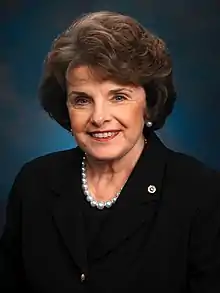
.jpg.webp)

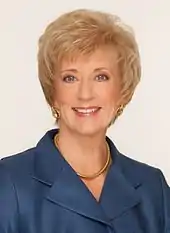
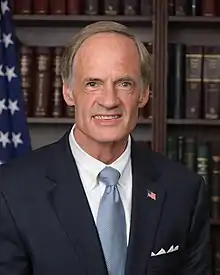

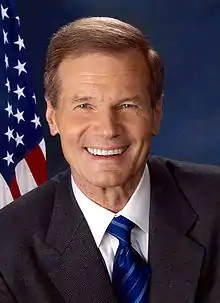
.jpg.webp)
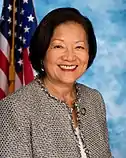
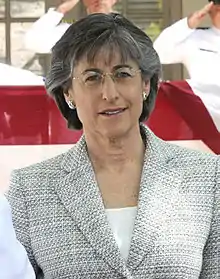
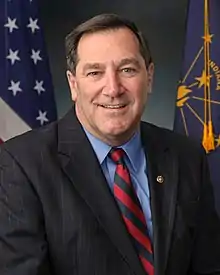
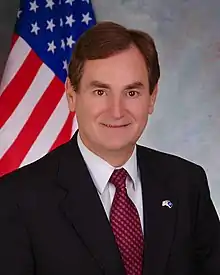
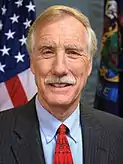
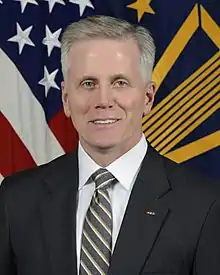
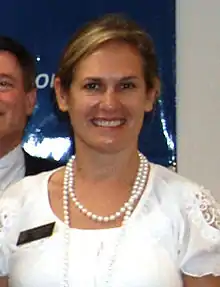
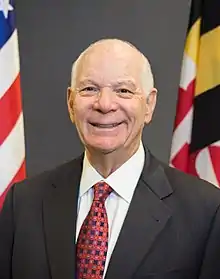

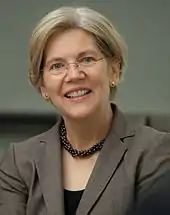
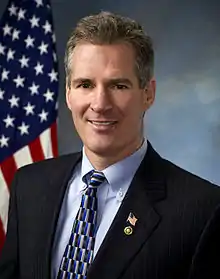
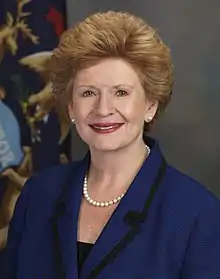
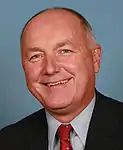
.jpg.webp)

.jpg.webp)

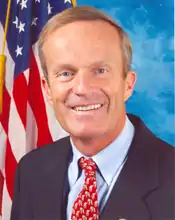
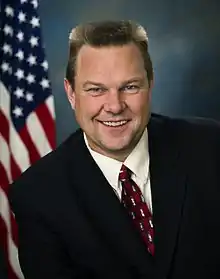

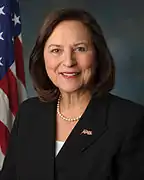
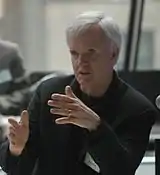
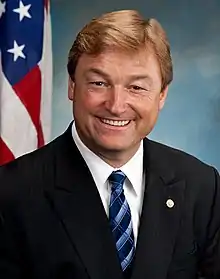

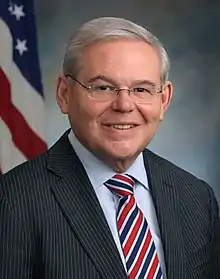
.jpg.webp)

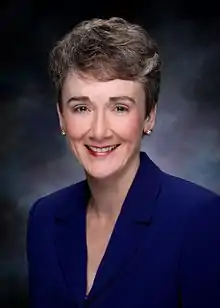
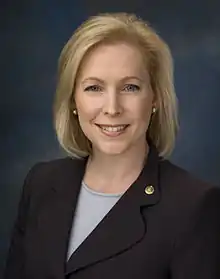
.jpg.webp)
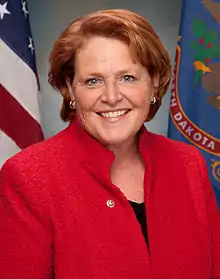
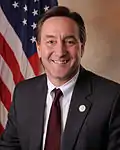
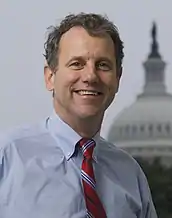

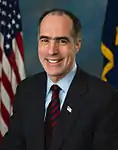
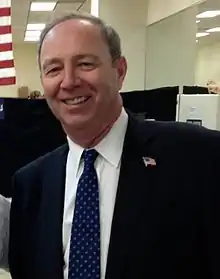
.jpg.webp)
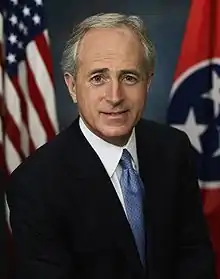
.jpg.webp)



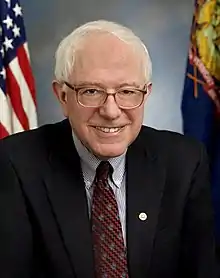

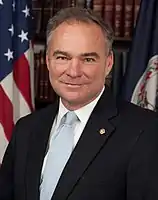
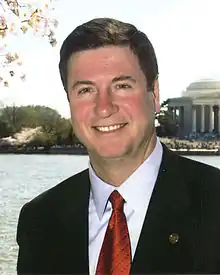
.jpg.webp)
.jpg.webp)
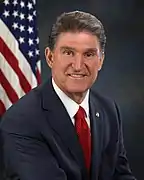
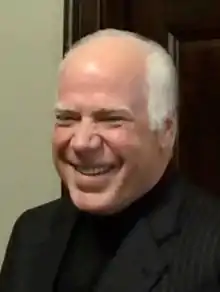
.jpg.webp)
